Submitted:
24 August 2023
Posted:
25 August 2023
Read the latest preprint version here
Abstract
Keywords:
1. Introduction
2. Materials and Methods
2.1. Research Methodology
- Philosophy: interpretativism;
- Approach to theory development: deduction;
- Methodological choice: mixed-method simple;
- Strategies: survey and archival research;
- Time horizon: Cross-sectional.
2.2. Methodological Process
2.2.1. Theoretical Background
2.2.2. The occurrence of the term "sustainability"
- Sustainable Project Management – The Green Project Management (GPM®) Reference Guide, by GPM® [19];
- Individual Competence Baseline for Project, Programme & Portfolio Management, by International Project Management Association [20];
- A Guide to the Project Management Body of Knowledge – PMBOK® Guide by Project Management Institute [21];
- Managing Successful Projects with PRINCE2® by AXELOS [22];
- PM² Methodology Guide by PM² ALLIANCE [23].
2.2.3. PM² and PRiSMTM
3. Results
3.1. Theoretical Background
3.1.1. Project Management
3.1.2. Sustainability
- People - seeks to end poverty and hunger;
- Planet - involves meeting present and future needs, but protecting the planet from degradation;
- Prosperity - seeks to ensure that all human beings have a prosperous and fulfilling life;
- Peace - seeks just, peaceful, inclusive societies, free from fear and violence;
- Partnership - seeks the means necessary to implement this Agenda.
3.1.3. Sustainability in Project Management
3.1.4. PM² and PRiSMTM methodologies
- Uses universally accepted PM best practices;
- Has a common vocabulary, which allows easy communication and application of the concepts;
- Establishes a link to the PM² Agile and PM² Project Portfolio Management models;
- Is simple and easy to apply;
- Improves the effectiveness of PM;
- Provides templates and guidelines for the process and artefacts used.
3.2. The presence of the term "sustainability"
3.2.1. Sustainability in project management guides
3.2.2. Sustainability in project management in scientific publications
- The junction of the two themes appears in the 80s, more precisely in the year 1986, with only one publication;
- Between 1985 and 1994, the number of published articles can be considered insignificant;
- An abrupt growth in the number of publications between the years 1999 and 2004;
- 2004 and 2005 were the years with more papers that include the sustainability theme in PM;
- A decreasing trend in the thematic from 2004 to 2009;
- A gradual rise between 2009 and 2021, with some occasional exceptions.
3.3. Analysis of PM² and PRiSMTM methodologies
3.3.1. Analysis based on guides
- PRiSMTM - to make the PM process more sustainable;
- PM² - to address the needs of institutions and projects owned/funded by the European Union, although, according to PM² Alliance (2018) [58], it can be used by any organization and be applied to any project or activity. PM² allows adaptation and customization to effectively address the needs of any project.
3.3.2. Analysis based on scientific publications
3.3.3. Analysis based on interviews
4. Discussion
Author Contributions
Funding
Institutional Review Board Statement
Informed Consent Statement
Data Availability Statement
Acknowledgments
Conflicts of Interest
References
- Fonseca, L.; Carvalho, F.; Santos, G. Strategic CSR: Framework for Sustainability through Management Systems Standards—Implementing and Disclosing Sustainable Development Goals and Results. Sustainability 2023, 15, 11904. [Google Scholar] [CrossRef]
- Rosati, F.; Faria, L.G.D. Addressing the SDGs in Sustainability Reports: The Relationship with Institutional Factors. Journal of Cleaner Production 2019, 215, 1312–1326. [Google Scholar] [CrossRef]
- Fonseca; Carvalho The Reporting of SDGs by Quality, Environmental, and Occupational Health and Safety-Certified Organizations. Sustainability 2019, 11, 5797. [CrossRef]
- Fonseca, L.M.; Domingues, J.P.; Dima, A.M. Mapping the Sustainable Development Goals Relationships. Sustainability 2020, 12, 3359. [Google Scholar] [CrossRef]
- Yin, C.; Zhao, W.; Fu, B.; Meadows, M.E.; Pereira, P. Key Axes of Global Progress towards the Sustainable Development Goals. Journal of Cleaner Production 2023, 385, 135767. [Google Scholar] [CrossRef]
- Stanitsas, M.; Kirytopoulos, K.; Leopoulos, V. Integrating Sustainability Indicators into Project Management: The Case of Construction Industry. Journal of Cleaner Production 2021, 279, 123774. [Google Scholar] [CrossRef]
- Jensen, A.; Thuesen, C.; Geraldi, J. The Projectification of Everything: Projects as a Human Condition. Project Management Journal 2016, 47, 21–34. [Google Scholar] [CrossRef]
- Vrchota, J.; Řehoř, P.; Maříková, M.; Pech, M. Critical Success Factors of the Project Management in Relation to Industry 4.0 for Sustainability of Projects. Sustainability (Switzerland) 2021, 13, 1–19. [Google Scholar] [CrossRef]
- Silvius, G. Sustainability as a New School of Thought in Project Management. Journal of Cleaner Production 2017, 166, 1479–1493. [Google Scholar] [CrossRef]
- Silvius, A.; Schipper, R. Sustainability in Project Management: A Literature Review and Impact Analysis. Social Business 2014, 4, 63–96. [Google Scholar] [CrossRef]
- Brones, F.; De Carvalho, M.M.; De Senzi Zancul, E. Ecodesign in Project Management: A Missing Link for the Integration of Sustainability in Product Development? Journal of Cleaner Production 2014, 80, 106–118. [Google Scholar] [CrossRef]
- Stanitsas, M.; Kirytopoulos, K.; Leopoulos, V. Integrating Sustainability Indicators into Project Management: The Case of Construction Industry. Journal of Cleaner Production 2021, 279, 123774. [Google Scholar] [CrossRef]
- Saad, M.H.; Nazzal, M.A.; Darras, B.M. A General Framework for Sustainability Assessment of Manufacturing Processes. Ecological Indicators 2019, 97, 211–224. [Google Scholar] [CrossRef]
- Silvius, G. Sustainability as a New School of Thought in Project Management. Journal of Cleaner Production 2017, 166, 1479–1493. [Google Scholar] [CrossRef]
- Saunders, M.; Lewis, P.; Thornhill, A. Research Methods for Business Students, 8th ed.; Pearson: Harlow, 2019; ISBN 978-1292208787. [Google Scholar]
- Saunders, M.; Lewis, P.; Thornhill, A. Research Methods for Business Students, 8th ed.; Pearson: Harlow, 2019; ISBN 978-1292208787. [Google Scholar]
- Page, M.J.; McKenzie, J.E.; Bossuyt, P.M.; Boutron, I.; Hoffmann, T.C.; Mulrow, C.D.; Shamseer, L.; Tetzlaff, J.M.; Akl, E.A.; Brennan, S.E.; et al. The PRISMA 2020 Statement: An Updated Guideline for Reporting Systematic Reviews. Syst Rev 2021, 10, 89. [Google Scholar] [CrossRef] [PubMed]
- Laursen, M.; Svejvig, P. Taking Stock of Project Value Creation: A Structured Literature Review with Future Directions for Research and Practice. International Journal of Project Management 2016, 34, 736–747. [Google Scholar] [CrossRef]
- Carboni, J.; Duncan, W.; Gonzalez, M.; Milsom, P.; Young, M. Sustainable Project Management - The GPM Reference Guide; GPM Global, Ed.; 2nd Ed.; 2018.
- IPMA. ICB4 - Individual Competence Baseline for Project, Programme & Portfolio Management, Version 4.0; International Project Management Association: Nijkerk, 2015.
- PMI. PMBOK Guide - Seventh Edition; Project Management Institute, Inc.: Newton Square, Pennsylvania, 2021. ISBN 9781628256642.
- AXELOS. Managing Successful Projects with PRINCE2®; 6th Ed.; 2017.
- PM2 ALLIANCE. Metodologia de Gestão de Projetos - Guide 3.0; PM2 Alliance: Luxembourg, 2018.
- Pais Ribeiro, J.L. RESEARCH REVIEW AND SCIENTIFIC EVIDENCE. Psicologia, Saúde & Doença 2014, 15. [Google Scholar] [CrossRef]
- Donato, H.; Donato, M. Stages for Undertaking a Systematic Review. Acta Medica Portuguesa 2019, 32, 227–235. [Google Scholar] [CrossRef]
- Furlan, A.D.; Clarke, J.; Esmail, R.; Sinclair, S.; Irvin, E.; Bombardier, C. A Critical Review of Reviews on the Treatment of Chronic Low Back Pain. Spine 2001, 26, E155–E162. [Google Scholar] [CrossRef]
- European Union Evolution of PM2.
- GPM Media Release: GPM Releases New P5 Standard for Sustainable Project Management.
- Carboni, J.; Duncan, W.; Gonzalez, M.; Milsom, P.; Young, M. Sustainable Project Management - The GPM Reference Guide; GPM Global, Ed.; 2nd Ed.; 2018.
- Takagi, N.; Varajão, J. Integration of Success Management into Project Management Guides and Methodologies - Position Paper. Procedia Computer Science 2019, 164, 366–372. [Google Scholar] [CrossRef]
- Pantouvakis, J.P. How Can IPMA Contribute to New PM2 EU Commission Standard? In Proceedings of the Proceedings of the 12th International Scientific and Technical Conference on Computer Sciences and Information Technologies, CSIT 2017; Institute of Electrical and Electronics Engineers Inc., November 2017; Vol. 2; pp. 246–251.
- Moya-Colorado, A.; León-Bolaños, N.; Yagüe-Blanco, J.L. The Role of Donor Agencies in Promoting Standardized Project Management in the Spanish Development Non-Government Organizations. Sustainability (Switzerland) 2021, 13, 1–15. [Google Scholar] [CrossRef]
- Ribeiro-Lopes, S.; Tereso, A.; Ferreira, J.L.; Sousa, P.; Engrácia, P. Application of the PM2 Methodology in the Project Management of the Portuguese Project Management Observatory Creation – Initiating Phase. Procedia Computer Science 2022, 196, 816–823. [Google Scholar] [CrossRef]
- Takagi, N.; Varajão, J. Success Management in Information Systems Projects - Work-in-Progress. In Proceedings of the Atas da Conferencia da Associacao Portuguesa de Sistemas de Informacao; Associacao Portuguesa de Sistemas de Informacao, 2020; Vol. 2020-Octob.
- Takagi, N.; Varajão, J.; Ribeiro, P. Integrating Success Management into EU PM2. In Proceedings of the Atas da Conferencia da Associacao Portuguesa de Sistemas de Informacao; Associação Portuguesa de Sistemas de Informação; 2019. [Google Scholar]
- Fiddicke, U.; Pack, L.K.; Tolonen, H.; Sepai, O.; López, M.E.; Castaño, A.; Schoeters, G.; Kolossa-Gehring, M. A Phased Approach for Preparation and Organization of Human Biomonitoring Studies. International Journal of Hygiene and Environmental Health 2021, 232, 113684. [Google Scholar] [CrossRef] [PubMed]
- Katunina, I. V.; Fomina, Yu.A. In Search of Excellence in Social Entrepreneurship Project Management Experience and Standards of the European Union. Strategic decisions and risk management 2021, 12, 92–101. [Google Scholar] [CrossRef]
- Piterska, V.; Kolesnikov, O.; Lukianov, D.; Kolesnikova, K.; Gogunskii, V.; Olekh, T.; Shakhov, A.; Rudenko, S. Development of the Markovian Model for the Life Cycle of a Project’s Benefits. Eastern-European Journal of Enterprise Technologies 2018, 5, 30–39. [Google Scholar] [CrossRef]
- Turan, F.M.; Johan, K. Assessing Sustainability Framework of Automotiverelated Industry in the Malaysia Context Based on GPM P5 Standard. ARPN Journal of Engineering and Applied Sciences 2016, 11, 7606–7611. [Google Scholar]
- Piterska, V.; Rudenko, S.; Shakhov, A. Development of the Method of Formation of the Architecture of the Innovation Program in the System “Univers -State-Business. ” International Journal of Engineering and Technology(UAE) 2018, 7, 232–239. [Google Scholar] [CrossRef]
- Johan, K.; Turan, F.M. Industrial Training Approach Using GPM P5 Standard for Sustainability in Project Management: A Framework for Sustainability Competencies in the 21st Century. In Proceedings of the IOP Conference Series: Materials Science and Engineering; Institute of Physics Publishing, December 2016; Vol. 160.
- Turan, F.M.; Johan, K.; Lanang, W.N.S.W.; Nor, N.H.M. Development of Systematic Sustainability Assessment (SSA) for the Malaysian Industry. In Proceedings of the IOP Conference Series: Materials Science and Engineering; Institute of Physics Publishing, December 2016; Vol. 160.
- Johan, K.; Turan, F.M. The Development of Sustainability Graduate Community (SGC) as a Learning Pathway for Sustainability Education - A Framework for Engineering Programmes in Malaysia Technical Universities Network (MTUN). In Proceedings of the IOP Conference Series: Materials Science and Engineering; Institute of Physics Publishing, December 2016; Vol. 160.
- Wan Lanang, W.N.S.; Turan, F.M.; Johan, K. Systematic Assessment Through Mathematical Model for Sustainability Reporting in Malaysia Context. In Proceedings of the IOP Conference Series: Materials Science and Engineering; Institute of Physics Publishing, August 2017; Vol. 226.
- Trzeciak, M. Sustainable Risk Management in It Enterprises. Risks 2021, 9. [Google Scholar] [CrossRef]
- Lanang, W.N.S.W.; Turan, F.M.; Johan, K. Incorporating Attitudinal Parameter in Assessing Sustainability of Malaysia Manufacturing Industry. In Proceedings of the IOP Conference Series: Materials Science and Engineering; Institute of Physics Publishing, April 2018; Vol. 342.
- Verba, Y.; Ivanov, I. Sustainable Development and Project Management: Objectives and Integration Results. Economic and social changes: facts, trends, forecast 2015, 135–146. [Google Scholar] [CrossRef]
- Salcedo Díaz, L.; Porto Solano, A.F.; Echeverri Gutiérrez, C.; Boss Agudelo, J.; Moreno Ortiz, C.A. Responsabilidad Social Empresarial: Modelo de Procesos de Desarrollo de Productos Con Base En La Metodología PRiSM y La Estrategia P5. Producción Más Limpia 2016, 11, 111–125. [Google Scholar] [CrossRef]
- Silva, N.R. Normalização de Publicações Técnicas e/Ou Científicas: Guia Prático Para Docentes, Pesquisadores e Discentes de Cursos Técnicos, Superiores e Pós-Graduação: Atualizado Conforme a Norma ABNT NBR 6023/2018; 1a Ed.; Editora Appris, 2021. ISBN 9786525005188.
- Nogueira, A. Metodologia Do Trabalho Científico 2015.
- Moura, D.L. Pesquisa Qualitativa: Um Guia Prático Para Pesquisadores Iniciantes; 1a Ed.; Editora CRV, 2021. ISBN 9786558686118.
- Takagi, N.; Varajão, J. Integration of Success Management into Project Management Guides and Methodologies - Position Paper. Procedia Computer Science 2019, 164, 366–372. [Google Scholar] [CrossRef]
- Takagi, N.; Varajão, J.; Ribeiro, P. Integrating Success Management into EU PM2. In Proceedings of the Atas da Conferencia da Associacao Portuguesa de Sistemas de Informacao; Associação Portuguesa de Sistemas de Informação; 2019. [Google Scholar]
- Takagi, N.; Varajão, J. Success Management in Information Systems Projects - Work-in-Progress. In Proceedings of the Atas da Conferencia da Associacao Portuguesa de Sistemas de Informacao; Associacao Portuguesa de Sistemas de Informacao, 2020; Vol. 2020-Octob.
- Kerzner, H. Project Management: A Systems Approach to Planning, Scheduling, and Controlling; 12th Ed.; Wiley, 2017. ISBN 978-1119165354.
- Tuman, G.J. Development and Implementation of Effective Project Management Information and Control Systems. In Project Management Handbook; Van Nostrand Reinhold: New York, 1983; pp. 495–532. [Google Scholar]
- Kerzner, H. Project Management: A Systems Approach to Planning, Scheduling, and Controlling; 12th Ed.; Wiley, 2017. ISBN 978-1119165354.
- PM2 ALLIANCE. Metodologia de Gestão de Projetos - Guide 3.0; PM2 Alliance: Luxembourg, 2018.
- APM. APM Body of Knowledge; 6th Ed.; Association for Project Management: Reino Unido, 2012. ISBN 978-1-903494-82-0.
- APM. APM Body of Knowledge; 6th Ed.; Association for Project Management: Reino Unido, 2012. ISBN 978-1-903494-82-0.
- IPMA. ICB4 - Individual Competence Baseline for Project, Programme & Portfolio Management, Version 4.0; International Project Management Association: Nijkerk, 2015.
- Munns, A.K.; Bjeirmi, B.F. The Role of Project Management in Achieving Project Success. International Journal of Project Management 1996, 14, 81–87. [Google Scholar] [CrossRef]
- Wagner, R. Projectification and Its Impact on Societal Development in Germany. PM World Journal 2020, 2330–4480. [Google Scholar]
- Wagner, R. Projectification and Its Impact on Societal Development in Germany. PM World Journal 2020, 2330–4480. [Google Scholar]
- Midler, C. “Projectification” of the Firm: The Renault Case. Scandinavian Journal of Management 1995, 11, 363–375. [Google Scholar] [CrossRef]
- Jensen, A.; Thuesen, C.; Geraldi, J. The Projectification of Everything: Projects as a Human Condition. Project Management Journal 2016, 47, 21–34. [Google Scholar] [CrossRef]
- Sachs, J.D. The Age of Sustainable Development. In The Age of Sustainable Development; Columbia University Press, 2015. ISBN 0231173148.
- WCED. Our Common Future; First Ed.; Oxford University Press, Oxford, GB, 1987. ISBN 019282080X.
- Starik, M.; Rands, G.P. Weaving An Integrated Web: Multilevel and Multisystem Perspectives of Ecologically Sustainable Organizations. 1995, 20, 908–935. [Google Scholar] [CrossRef]
- Hart, S.L. A Natural-Resource-Based View of the Firm. The Academy of Management Review 1995, 20, 986. [Google Scholar] [CrossRef]
- Gimenez, C.; Sierra, V.; Rodon, J. Sustainable Operations: Their Impact on the Triple Bottom Line. International Journal of Production Economics 2012, 140, 149–159. [Google Scholar] [CrossRef]
- Elkington, J. Cannibals with Forks: The Triple Bottom Line of 21st Century Business; New Society Publishers: Gabriola Island, BC; Stony Creek, CT, 1998; ISBN 0865713928. [Google Scholar]
- Dalibozhko, A.; Krakovetskaya, I. Youth Entrepreneurial Projects for the Sustainable Development of Global Community: Evidence from Enactus Program. SHS Web of Conferences 2018, 57, 1009. [Google Scholar] [CrossRef]
- Schieg, M. The Model of Corporate Social Responsibility in Project Management. Verslas: teorija ir praktika 2009, 315–321. [Google Scholar] [CrossRef]
- Gimenez, C.; Sierra, V.; Rodon, J. Sustainable Operations: Their Impact on the Triple Bottom Line. International Journal of Production Economics 2012, 140, 149–159. [Google Scholar] [CrossRef]
- UNCSD. Indicators of Sustainable Development: Guidelines and Methodologies.; United Nations. 2001. [Google Scholar]
- Gladwin, T.N.; Kennelly, J.J.; Krause, T.-S. Shifting Paradigms for Sustainable Development: Implications for Management Theory and Research. Academy of management Review 1995, 20, 874–907. [Google Scholar] [CrossRef]
- European Commission. Green Paper: Promoting a European Framework for Corporate Social Responsibility, 2001.
- Lacy, P.; Cooper, T.; Hayward, R.; Neuberger, L. A New Era of Sustainability. UN Global Compact, Accenture, 2010. [Google Scholar]
- UN Transforming Our World: The 2030 Agenda for Sustainable Development. New York: United Nations, Department of Economic and Social Affairs, 2015.
- UN Transforming Our World: The 2030 Agenda for Sustainable Development. New York: United Nations, Department of Economic and Social Affairs, 2015.
- GPM. The P5 Standard for Sustainability in Project Management; GPM Global, Ed.; 2019. ISBN 9789896540821.
- GPM Insights into Sustainable Project Management - Study on the P5 TM Standard for Sustainability in Project Management 2019.
- Tsalis, T.A.; Malamateniou, K.E.; Koulouriotis, D.; Nikolaou, I.E. New Challenges for Corporate Sustainability Reporting: United Nations’ 2030 Agenda for Sustainable Development and the Sustainable Development Goals. Corporate Social Responsibility and Environmental Management 2020, 27, 1617–1629. [Google Scholar] [CrossRef]
- Comissão Europeia Pacto Ecológico Europeu.
- Carvalho, M.M.; Rabechini, R. Can Project Sustainability Management Impact Project Success? An Empirical Study Applying a Contingent Approach. International Journal of Project Management 2017, 35, 1120–1132. [Google Scholar] [CrossRef]
- Ivanov, I.; Vlasova, T.; Orlova, L. Project Management Regarded as a Driver of Sustainable Development. E3S Web of Conferences 2020, 210. [Google Scholar] [CrossRef]
- Sneddon, C.; Howarth, R.B.; Norgaard, R.B. Sustainable Development in a Post-Brundtland World. Ecological Economics 2006, 57, 253–268. [Google Scholar] [CrossRef]
- Sánchez, M.A. Integrating Sustainability Issues into Project Management. Journal of Cleaner Production 2015, 96, 319–330. [Google Scholar] [CrossRef]
- Sabini, L.; Muzio, D.; Alderman, N. 25 Years of ‘Sustainable Projects’. What We Know and What the Literature Says. International Journal of Project Management 2019, 37, 820–838. [Google Scholar] [CrossRef]
- Huemann, M.; Silvius, G. Projects to Create the Future: Managing Projects Meets Sustainable Development. International Journal of Project Management 2017, 35, 1066–1070. [Google Scholar] [CrossRef]
- Cole, R.J. Building Environmental Assessment Methods: Redefining Intentions and Roles. Building Research & Information 2005, 33, 455–467. [Google Scholar] [CrossRef]
- Deakin, M.; Huovila, P.; Rao, S.; Sunikka, M.; Vreeker, R. The Assessment of Sustainable Urban Development. Building Research & Information 2002, 30, 95–108. [Google Scholar] [CrossRef]
- Thomson, C.S.; El-Haram, M.A.; Emmanuel, R. Mapping Sustainability Assessment with the Project Life Cycle. Proceedings of the Institution of Civil Engineers: Engineering Sustainability 2011, 164, 143–157. [Google Scholar] [CrossRef]
- Schieg, M. The Model of Corporate Social Responsibility in Project Management. Verslas: teorija ir praktika 2009, 315–321. [Google Scholar] [CrossRef]
- Eskerod, P.; Huemann, M. Sustainable Development and Project Stakeholder Management: What Standards Say. International Journal of Managing Projects in Business 2013, 6, 36–50. [Google Scholar] [CrossRef]
- Eskerod, P.; Huemann, M. Sustainable Development and Project Stakeholder Management: What Standards Say. International Journal of Managing Projects in Business 2013, 6, 36–50. [Google Scholar] [CrossRef]
- Silvius, A.; Schipper, R. Sustainability in Project Management: A Literature Review and Impact Analysis. Social Business 2014, 4, 63–96. [Google Scholar] [CrossRef]
- Cole, R.J. Building Environmental Assessment Methods: Redefining Intentions and Roles. Building Research & Information 2005, 33, 455–467. [Google Scholar] [CrossRef]
- Deakin, M.; Huovila, P.; Rao, S.; Sunikka, M.; Vreeker, R. The Assessment of Sustainable Urban Development. Building Research & Information 2002, 30, 95–108. [Google Scholar] [CrossRef]
- Thomson, C.S.; El-Haram, M.A.; Emmanuel, R. Mapping Sustainability Assessment with the Project Life Cycle. Proceedings of the Institution of Civil Engineers: Engineering Sustainability 2011, 164, 143–157. [Google Scholar] [CrossRef]
- Goedknegt, D.; Silvius, A.J.G. The Implementation of Sustainability Principles in Project Management. In Proceedings of the Proceedings of the 26th IPMA World Congress, Crete; 2012; pp. 875–882. [Google Scholar]
- Valdes-Vasquez, R.; Klotz, L.E. Social Sustainability Considerations during Planning and Design: Framework of Processes for Construction Projects. Journal of construction engineering and management 2013, 139, 80–89. [Google Scholar] [CrossRef]
- Brones, F.; De Carvalho, M.M.; De Senzi Zancul, E. Ecodesign in Project Management: A Missing Link for the Integration of Sustainability in Product Development? Journal of Cleaner Production 2014, 80, 106–118. [Google Scholar] [CrossRef]
- Martens, M.L.; Carvalho, M.M. The Challenge of Introducing Sustainability into Project Management Function: Multiple-Case Studies. Journal of Cleaner Production 2016, 117, 29–40. [Google Scholar] [CrossRef]
- Carvalho, M.M.; Rabechini, R. Can Project Sustainability Management Impact Project Success? An Empirical Study Applying a Contingent Approach. International Journal of Project Management 2017, 35, 1120–1132. [Google Scholar] [CrossRef]
- Vrchota, J.; Řehoř, P.; Maříková, M.; Pech, M. Critical Success Factors of the Project Management in Relation to Industry 4.0 for Sustainability of Projects. Sustainability (Switzerland) 2021, 13, 1–19. [Google Scholar] [CrossRef]
- Økland, A. Gap Analysis for Incorporating Sustainability in Project Management. Procedia Computer Science 2015, 64, 103–109. [Google Scholar] [CrossRef]
- Sroufe, R. Integration and Organizational Change towards Sustainability. Journal of Cleaner Production 2017, 162, 315–329. [Google Scholar] [CrossRef]
- Sánchez, M.A. Integrating Sustainability Issues into Project Management. Journal of Cleaner Production 2015, 96, 319–330. [Google Scholar] [CrossRef]
- Sneddon, C.; Howarth, R.B.; Norgaard, R.B. Sustainable Development in a Post-Brundtland World. Ecological Economics 2006, 57, 253–268. [Google Scholar] [CrossRef]
- GPM Global PRiSMTM (Projects Integrating Sustainable Methods).
- Pantouvakis, J.P. How Can IPMA Contribute to New PM2 EU Commission Standard? In Proceedings of the Proceedings of the 12th International Scientific and Technical Conference on Computer Sciences and Information Technologies, CSIT 2017; Institute of Electrical and Electronics Engineers Inc., November 2017; Vol. 2, November 2017; Vol. 2, CSIT 2017; Institute of Electrical and Electronics Engineers Inc; pp. 246–251. [Google Scholar]
- Moya-Colorado, A.; León-Bolaños, N.; Yagüe-Blanco, J.L. The Role of Donor Agencies in Promoting Standardized Project Management in the Spanish Development Non-Government Organizations. Sustainability (Switzerland) 2021, 13, 1–15. [Google Scholar] [CrossRef]
- Fiddicke, U.; Pack, L.K.; Tolonen, H.; Sepai, O.; López, M.E.; Castaño, A.; Schoeters, G.; Kolossa-Gehring, M. A Phased Approach for Preparation and Organization of Human Biomonitoring Studies. International Journal of Hygiene and Environmental Health 2021, 232, 113684. [Google Scholar] [CrossRef] [PubMed]
- Katunina, I. V.; Fomina, Yu.A. In Search of Excellence in Social Entrepreneurship Project Management Experience and Standards of the European Union. Strategic decisions and risk management 2021, 12, 92–101. [Google Scholar] [CrossRef]
- Verba, Y.; Ivanov, I. Sustainable Development and Project Management: Objectives and Integration Results. Economic and social changes: facts, trends, forecast 2015, 135–146. [Google Scholar] [CrossRef]
- Turan, F.M.; Johan, K. Assessing Sustainability Framework of Automotiverelated Industry in the Malaysia Context Based on GPM P5 Standard. ARPN Journal of Engineering and Applied Sciences 2016, 11, 7606–7611. [Google Scholar]
- Turan, F.M.; Johan, K.; Lanang, W.N.S.W.; Nor, N.H.M. Development of Systematic Sustainability Assessment (SSA) for the Malaysian Industry. In Proceedings of the IOP Conference Series: Materials Science and Engineering; Institute of Physics Publishing, December 2016; Vol. 160.
- Salcedo Díaz, L.; Porto Solano, A.F.; Echeverri Gutiérrez, C.; Boss Agudelo, J.; Moreno Ortiz, C.A. Responsabilidad Social Empresarial: Modelo de Procesos de Desarrollo de Productos Con Base En La Metodología PRiSM y La Estrategia P5. Producción Más Limpia 2016, 11, 111–125. [Google Scholar] [CrossRef]
- Szabó, L. Sustainability, Creativity and Innovation in Project Management - Model Development for Assessing Organizational Performance through Projects. Vezetéstudomány / Budapest Management Review 2016, 47, 3–18. [Google Scholar] [CrossRef]
- Johan, K.; Turan, F.M. Industrial Training Approach Using GPM P5 Standard for Sustainability in Project Management: A Framework for Sustainability Competencies in the 21st Century. In Proceedings of the IOP Conference Series: Materials Science and Engineering; Institute of Physics Publishing, December 2016; Vol. 160.
- Johan, K.; Turan, F.M. The Development of Sustainability Graduate Community (SGC) as a Learning Pathway for Sustainability Education - A Framework for Engineering Programmes in Malaysia Technical Universities Network (MTUN). In Proceedings of the IOP Conference Series: Materials Science and Engineering; Institute of Physics Publishing, December 2016; Vol. 160.
- Wan Lanang, W.N.S.; Turan, F.M.; Johan, K. Systematic Assessment Through Mathematical Model for Sustainability Reporting in Malaysia Context. In Proceedings of the IOP Conference Series: Materials Science and Engineering; Institute of Physics Publishing, August 2017; Vol. 226.
- Piterska, V.; Kolesnikov, O.; Lukianov, D.; Kolesnikova, K.; Gogunskii, V.; Olekh, T.; Shakhov, A.; Rudenko, S. Development of the Markovian Model for the Life Cycle of a Project’s Benefits. Eastern-European Journal of Enterprise Technologies 2018, 5, 30–39. [Google Scholar] [CrossRef]
- Lanang, W.N.S.W.; Turan, F.M.; Johan, K. Incorporating Attitudinal Parameter in Assessing Sustainability of Malaysia Manufacturing Industry. In Proceedings of the IOP Conference Series: Materials Science and Engineering; Institute of Physics Publishing, April 2018; Vol. 342.
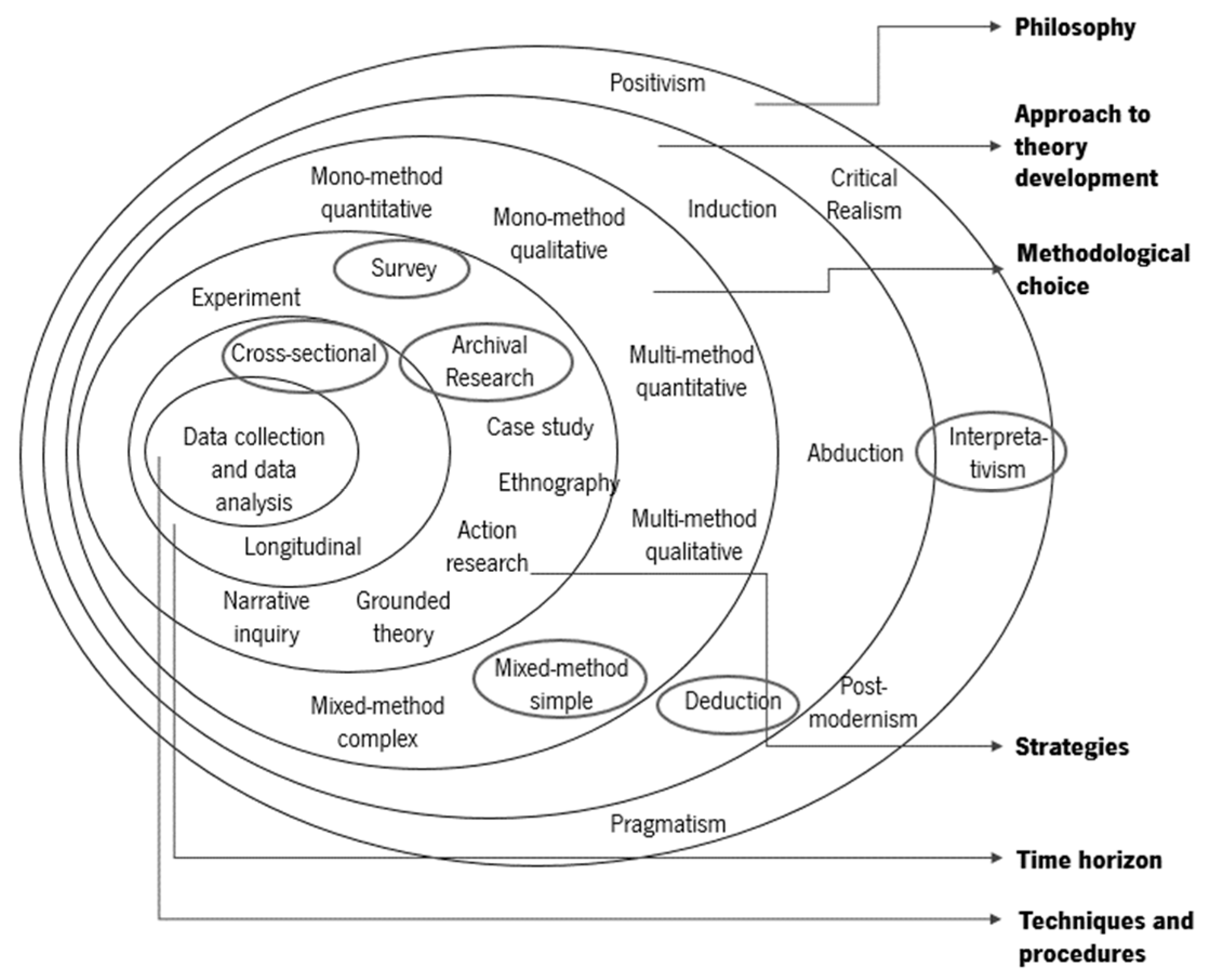
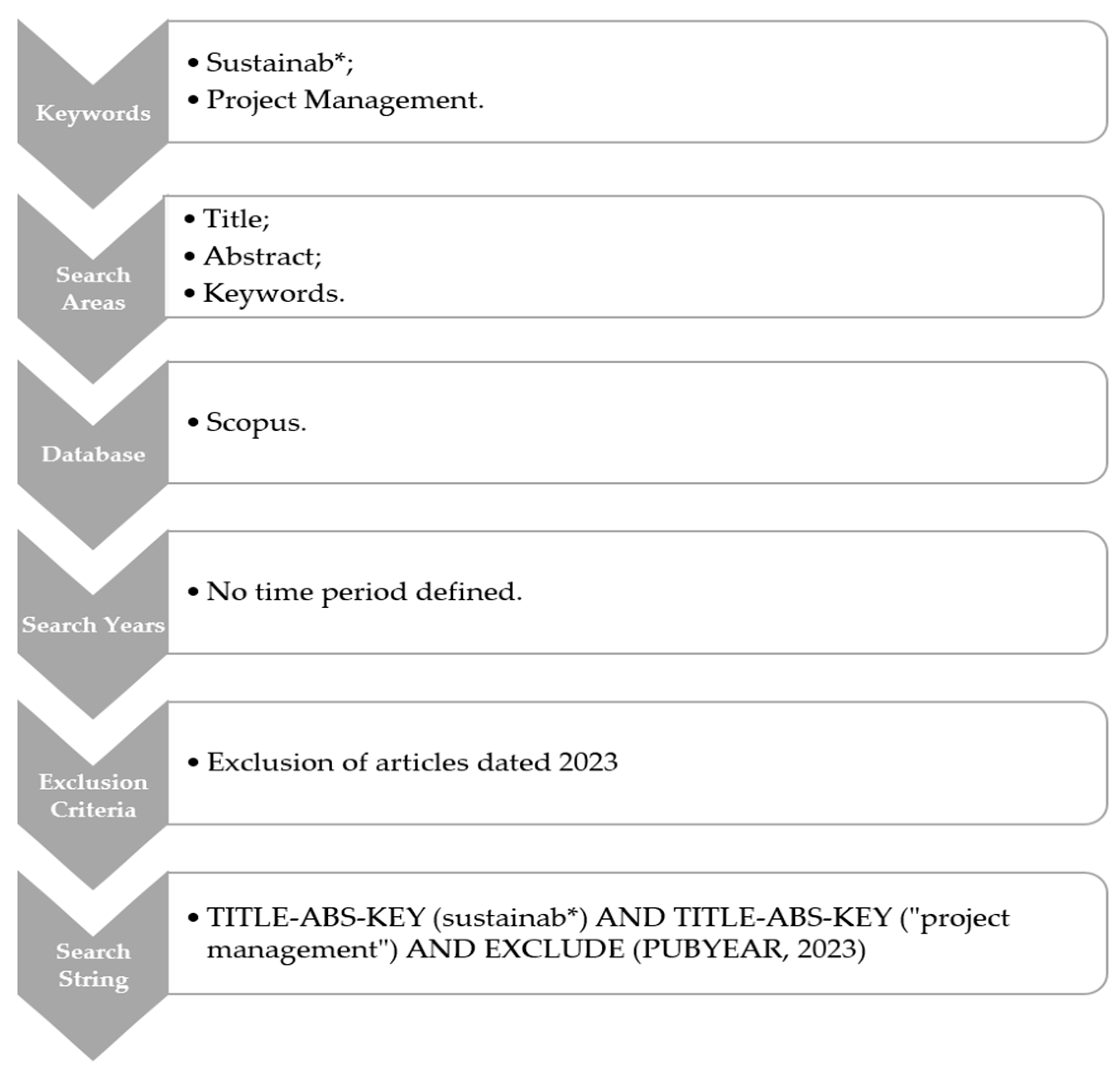
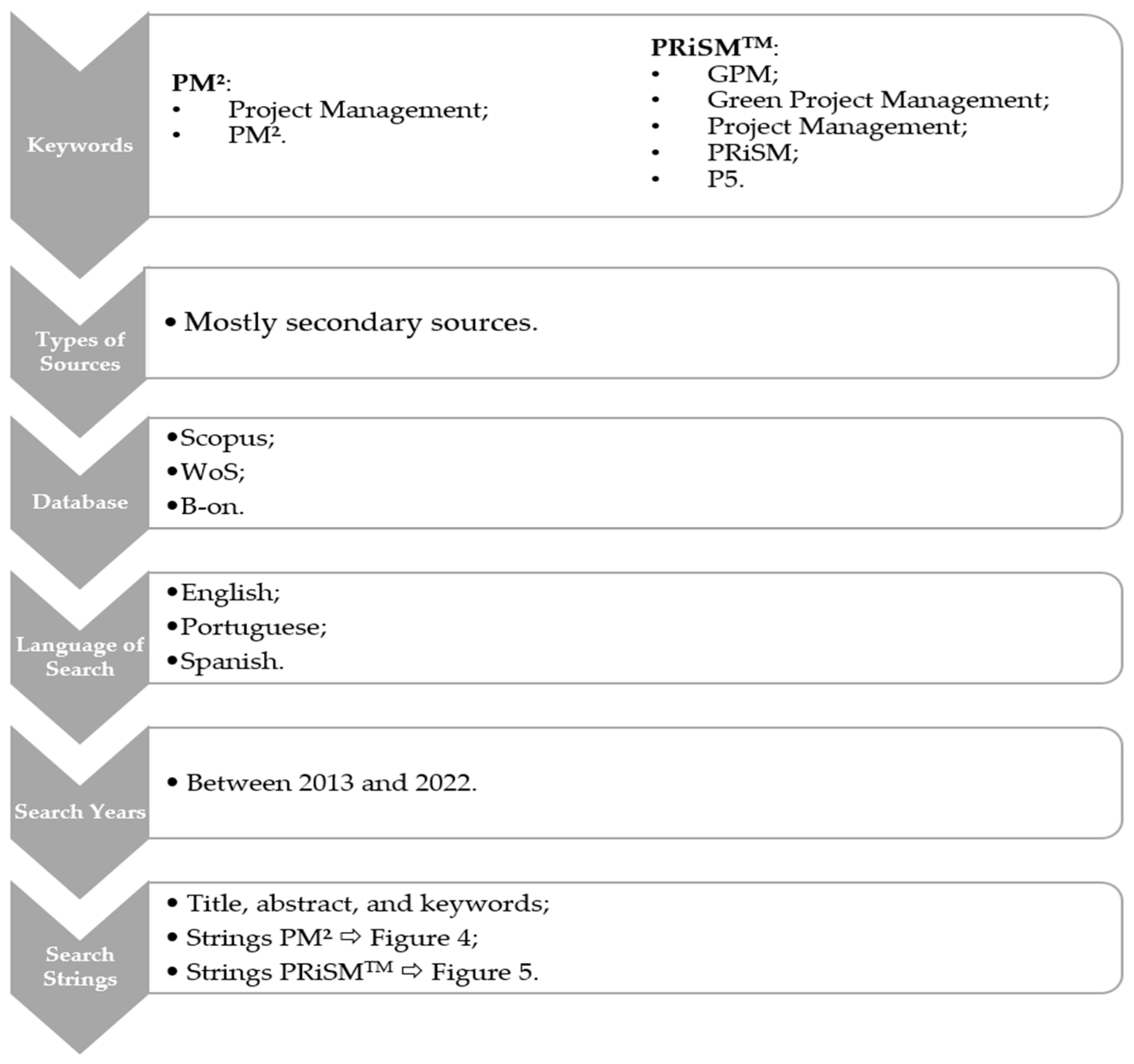
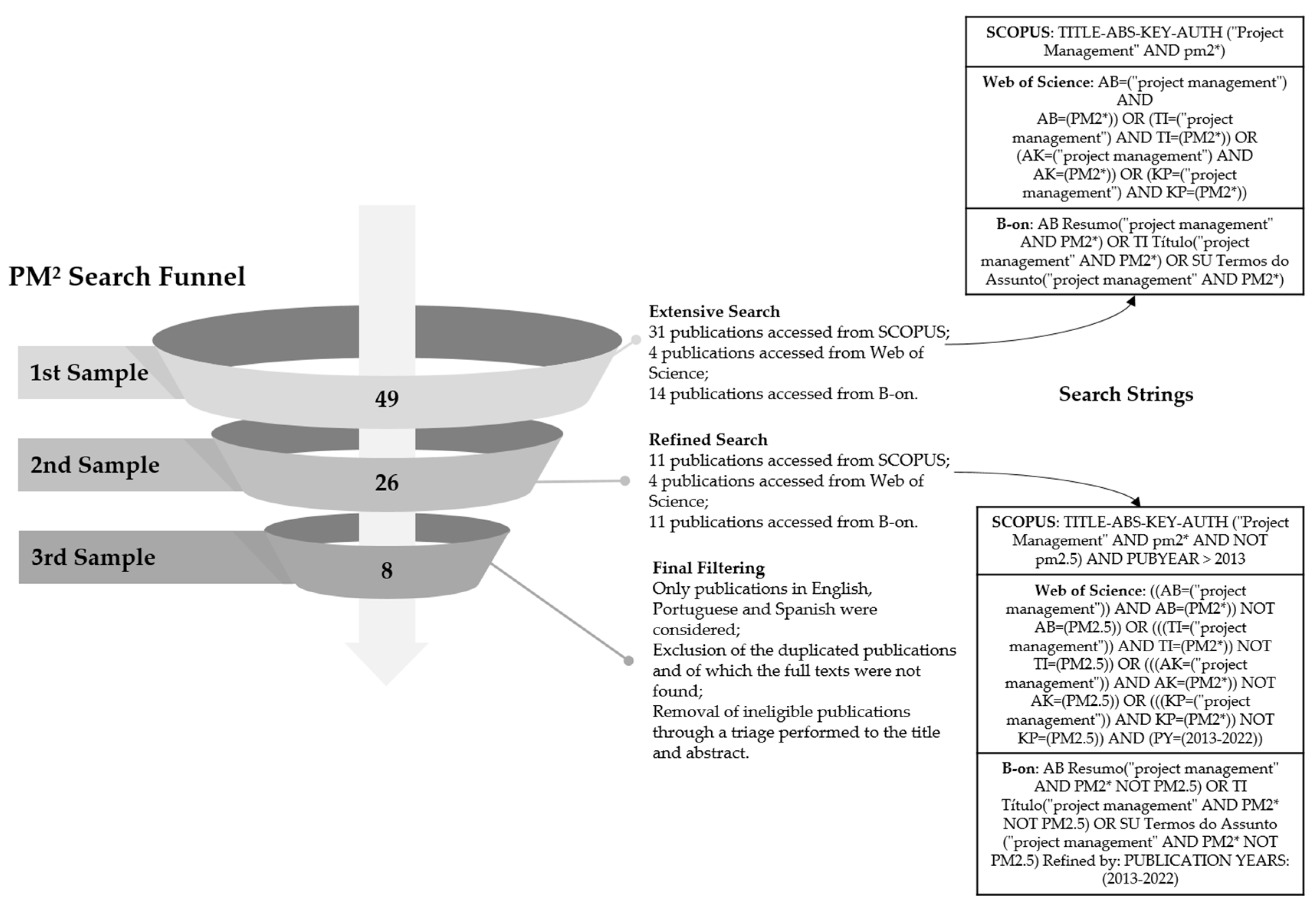
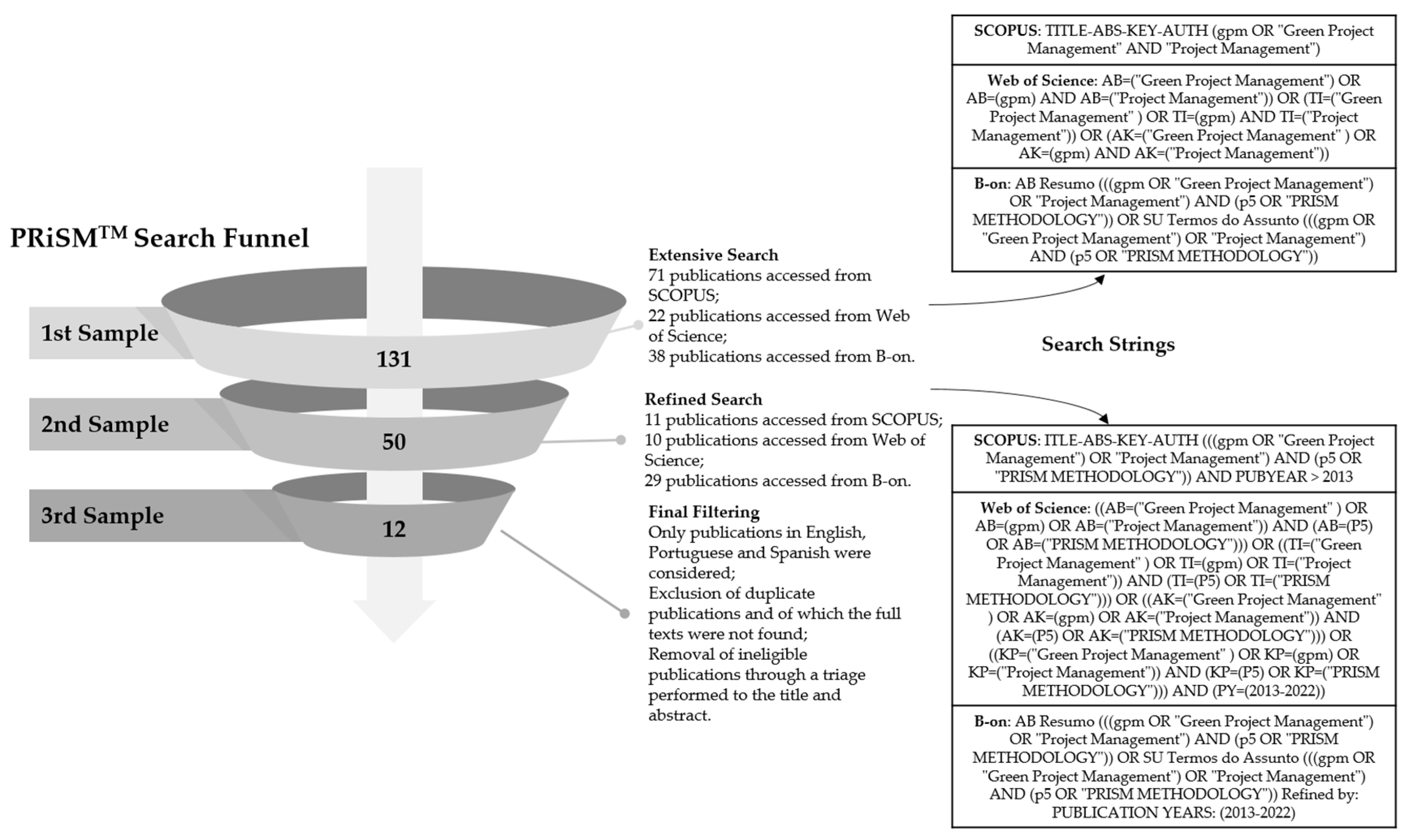
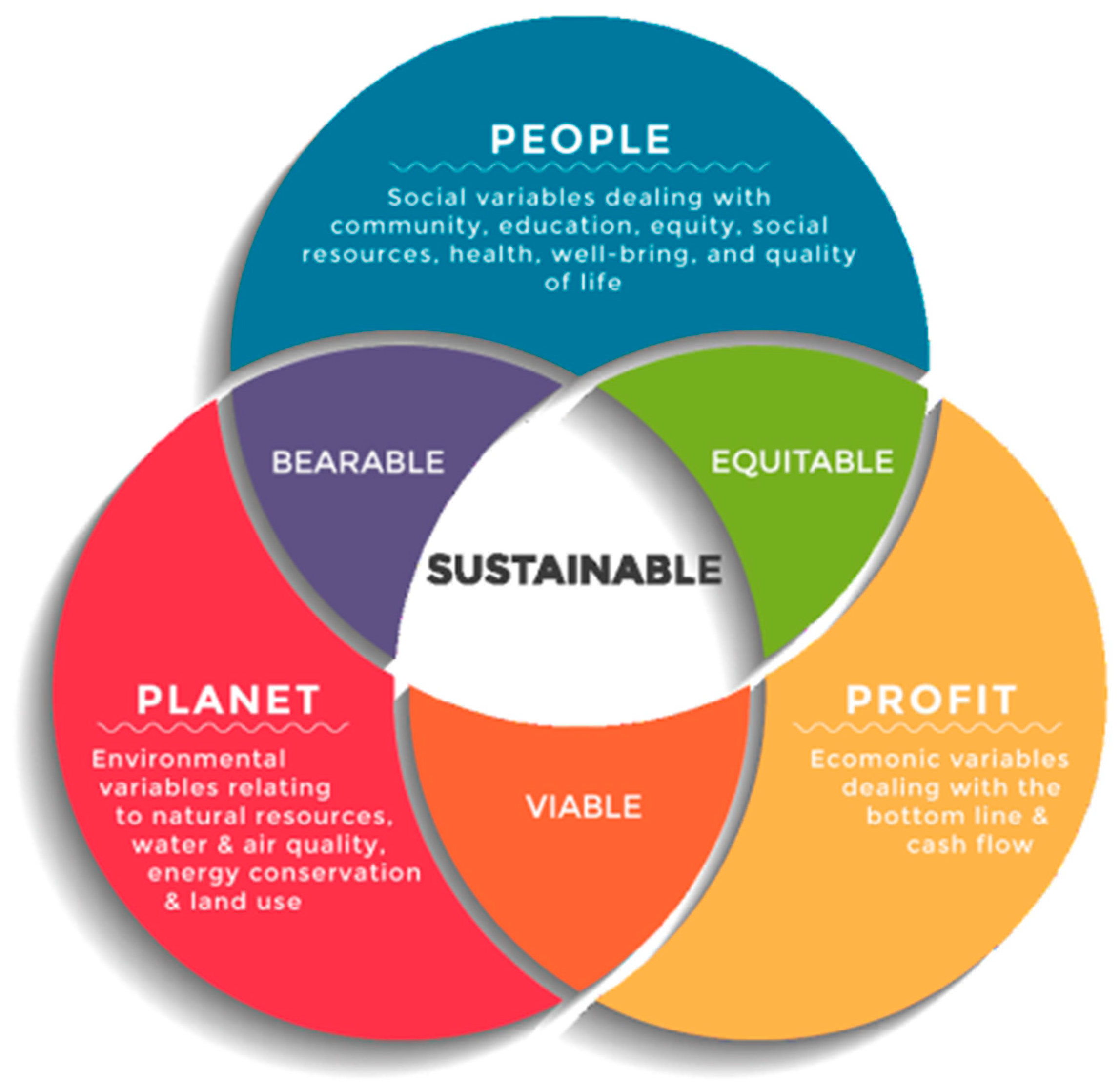


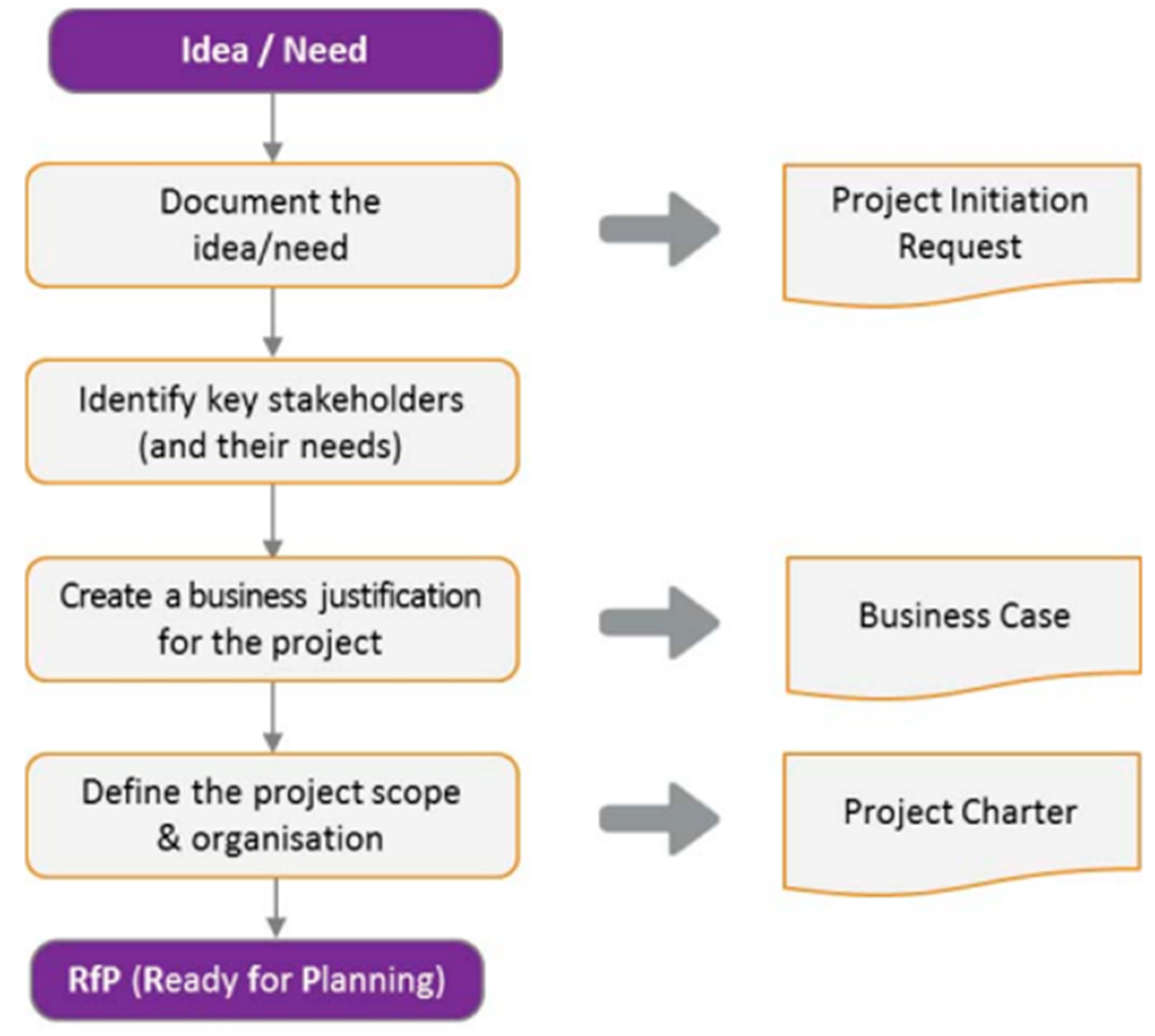
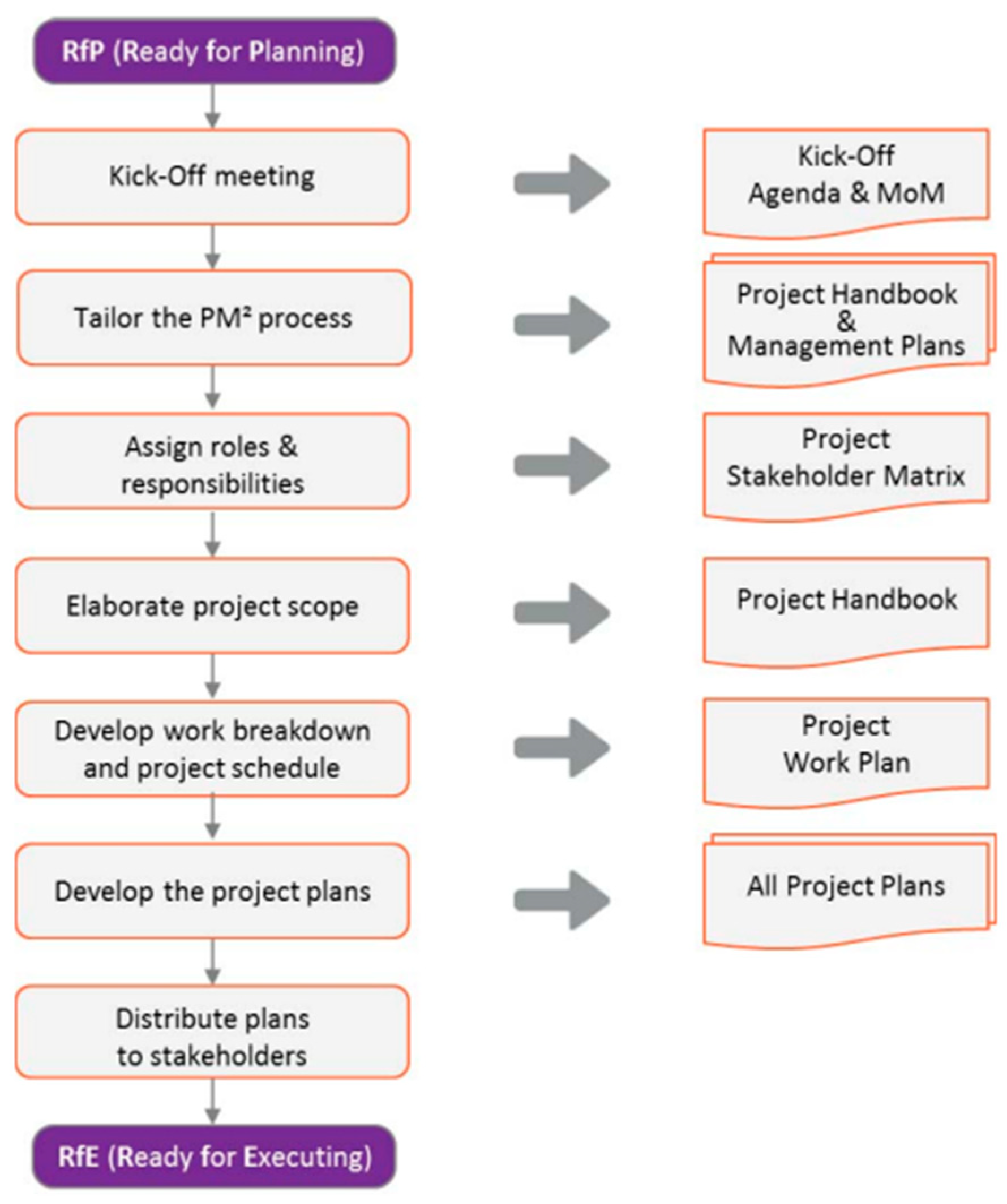
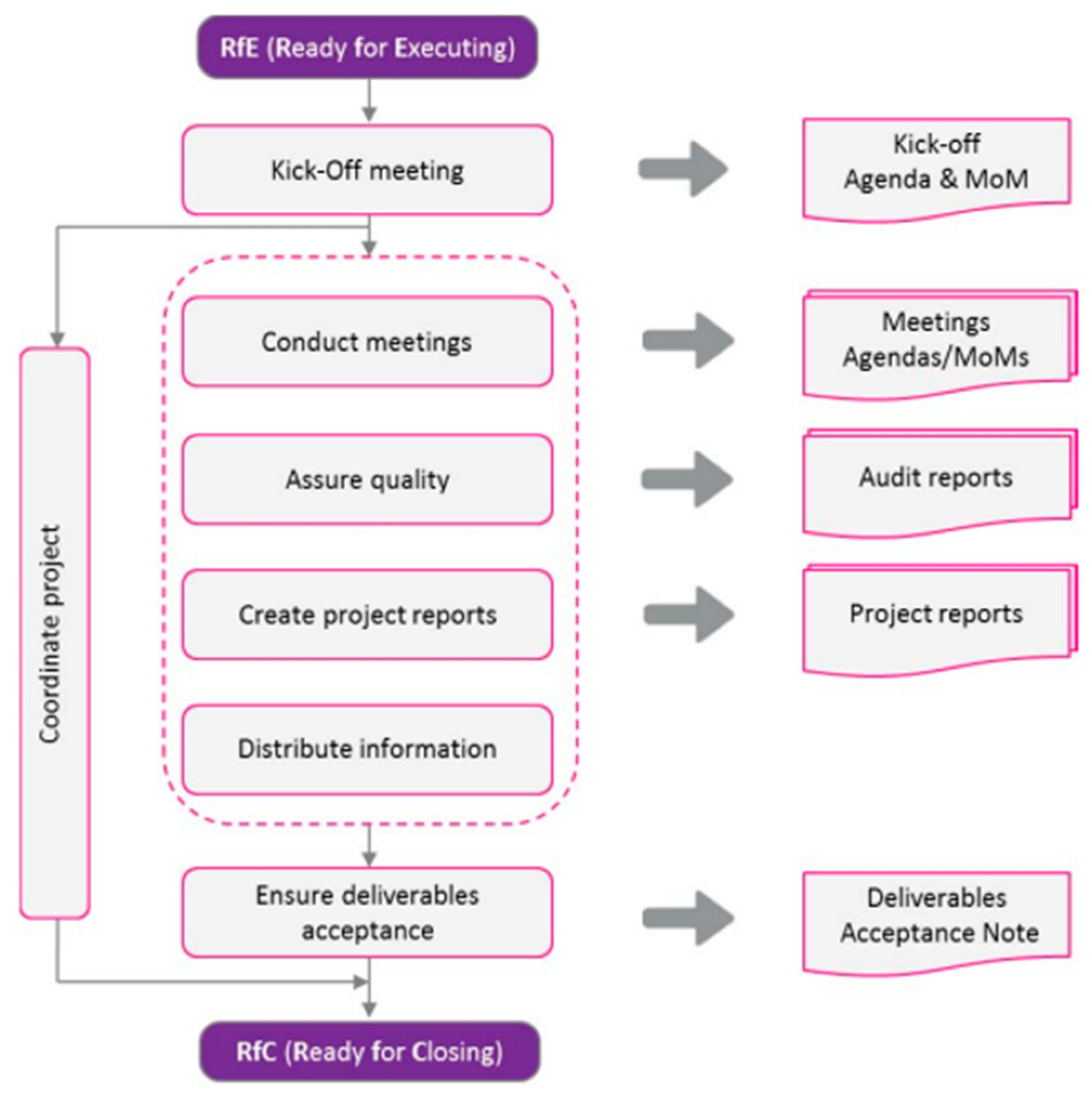
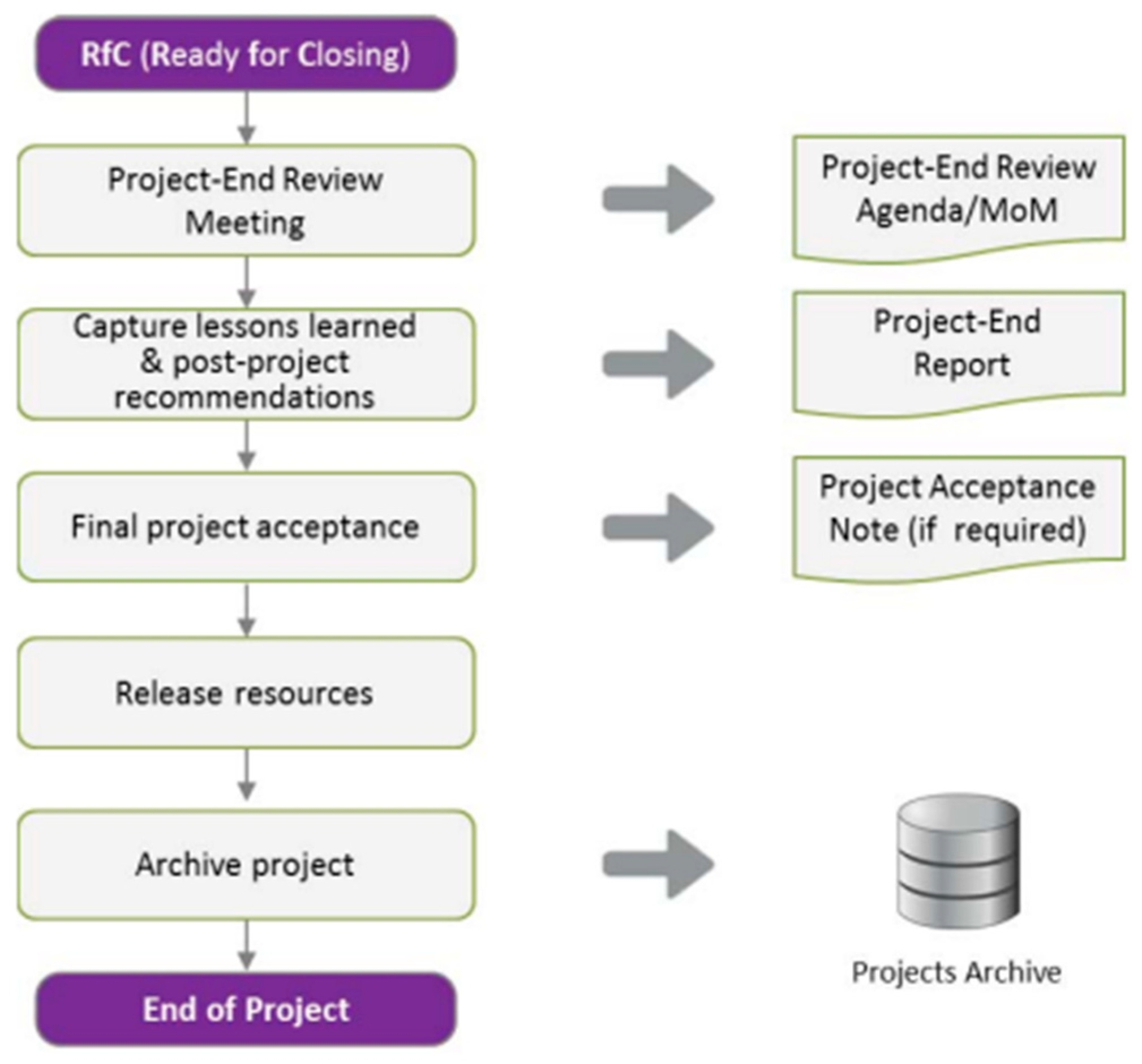
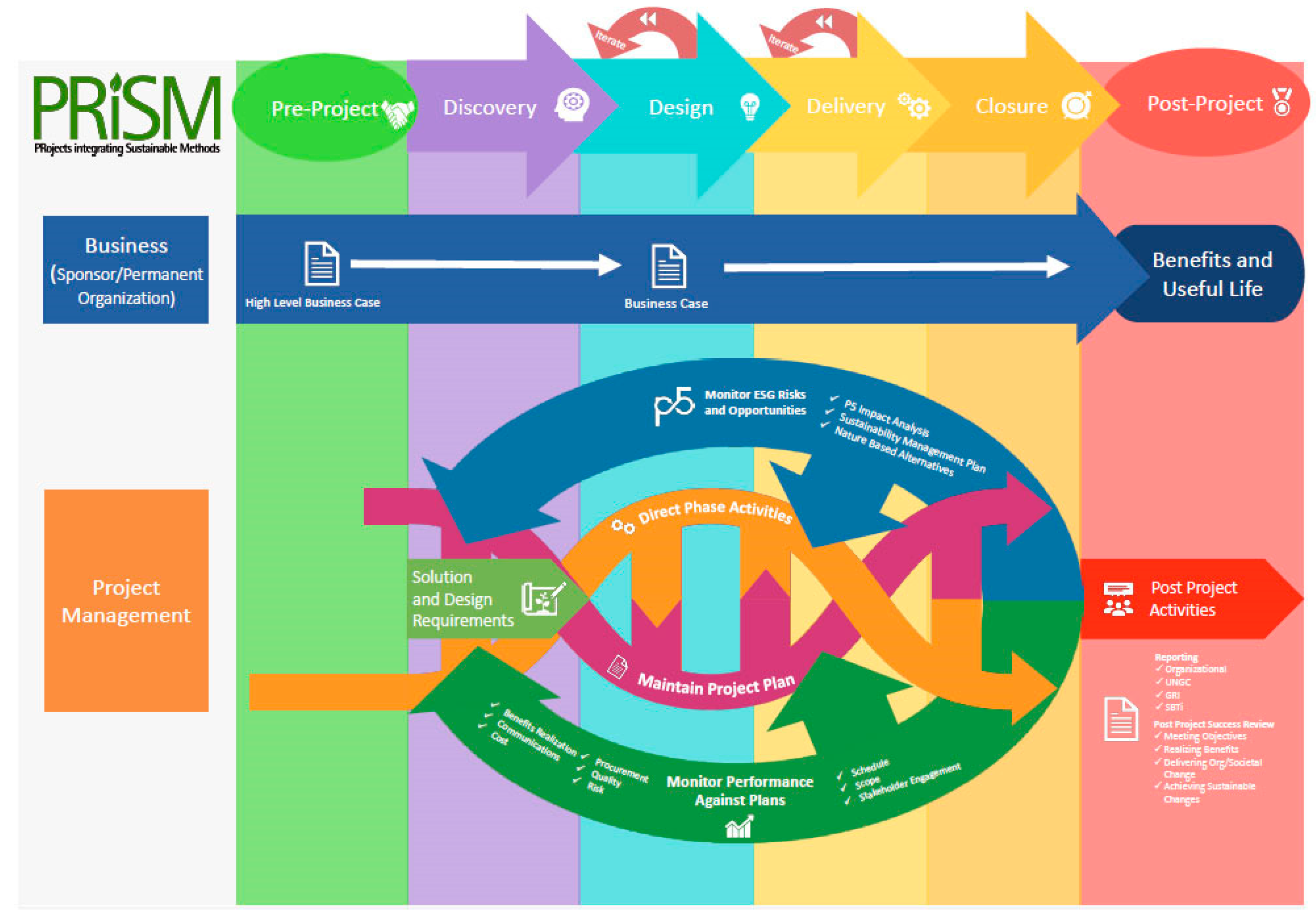
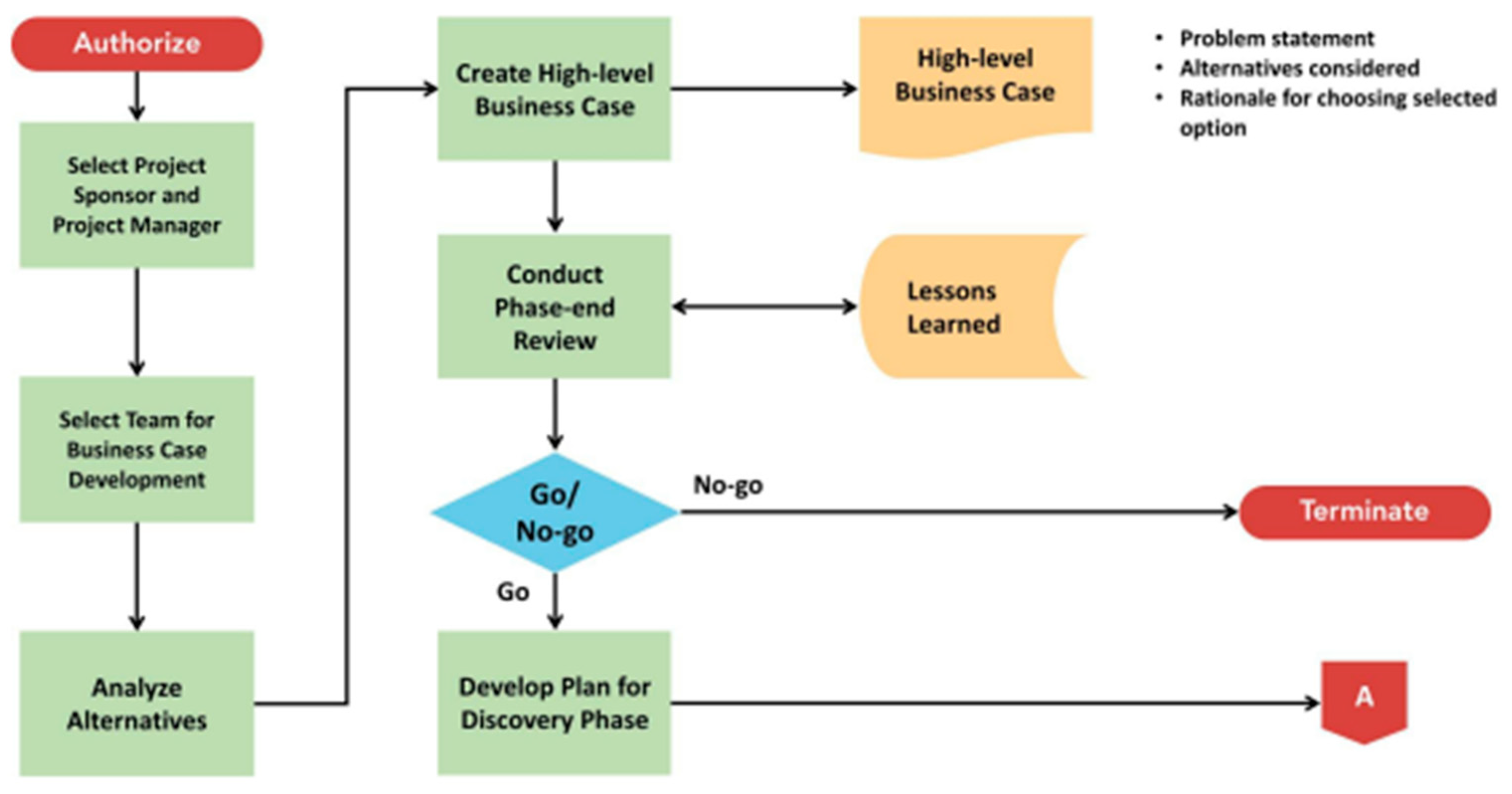
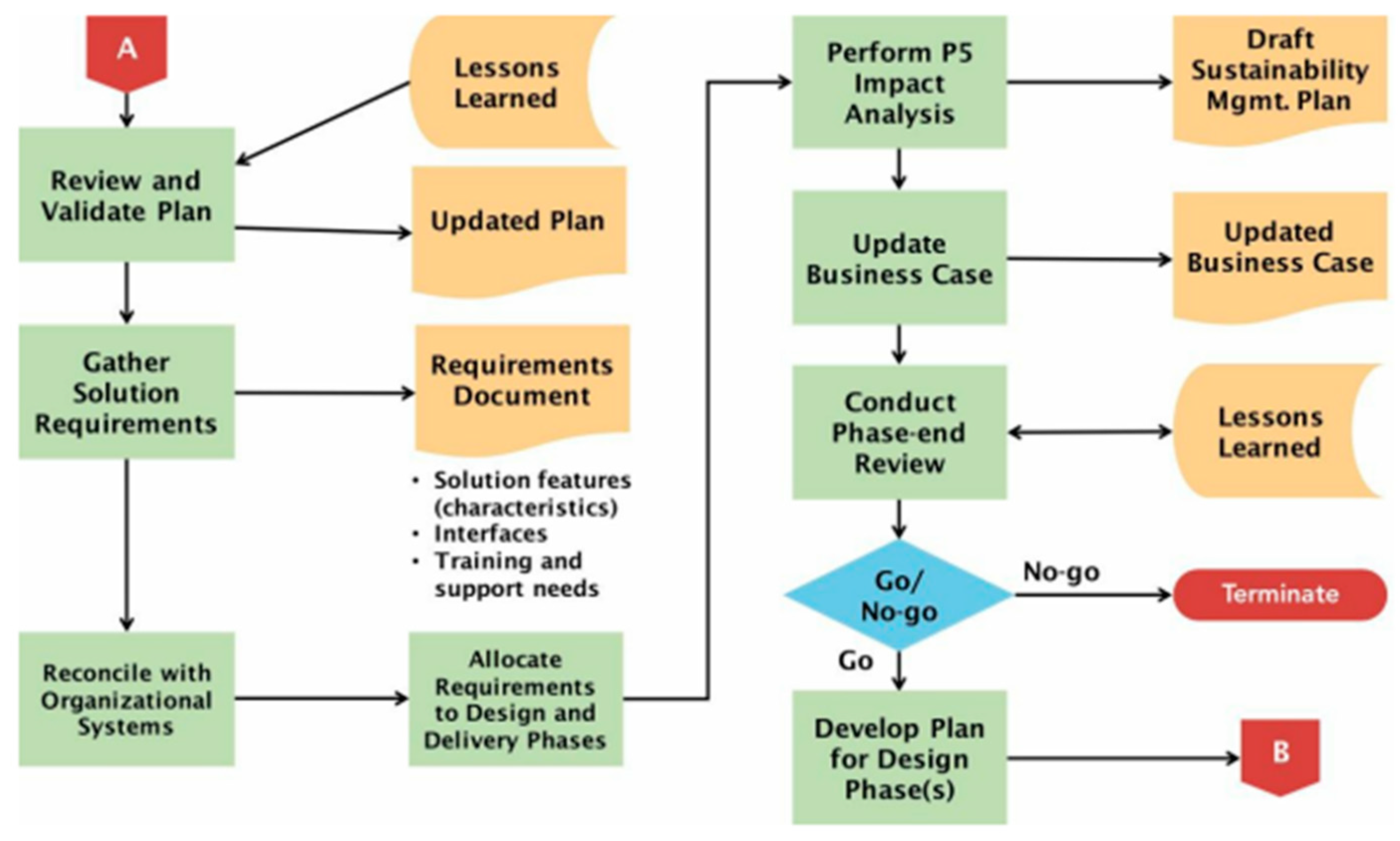
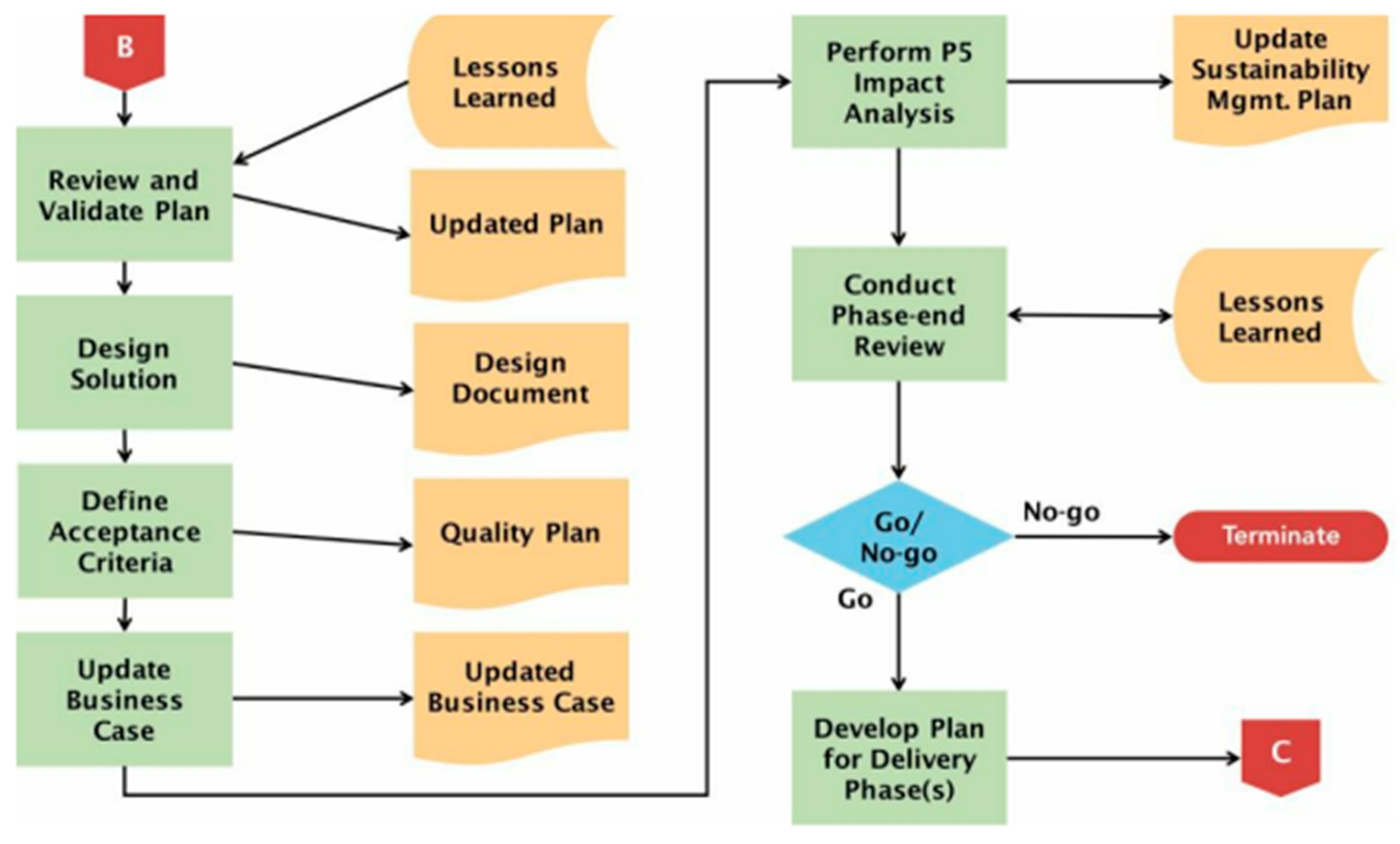
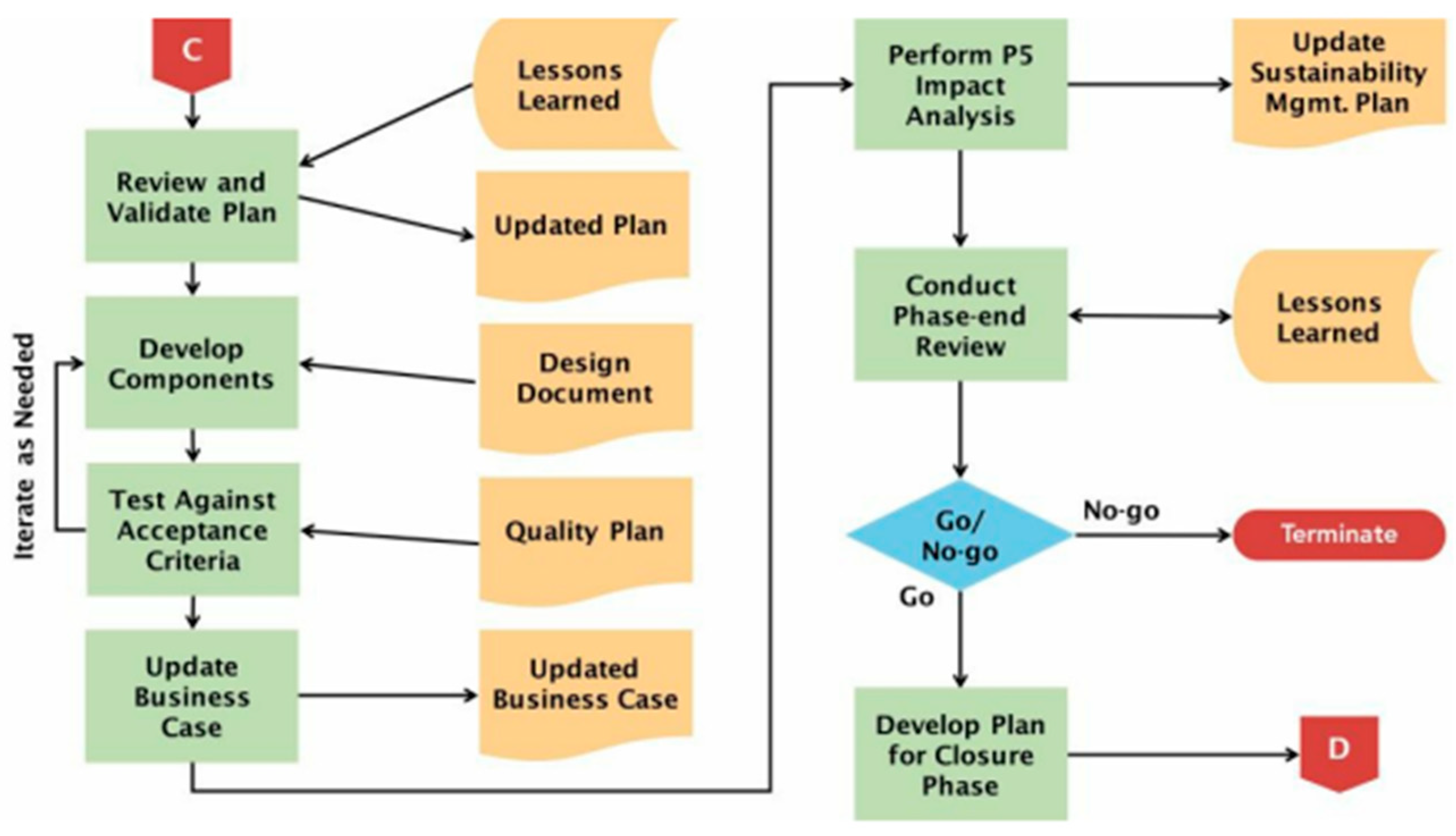
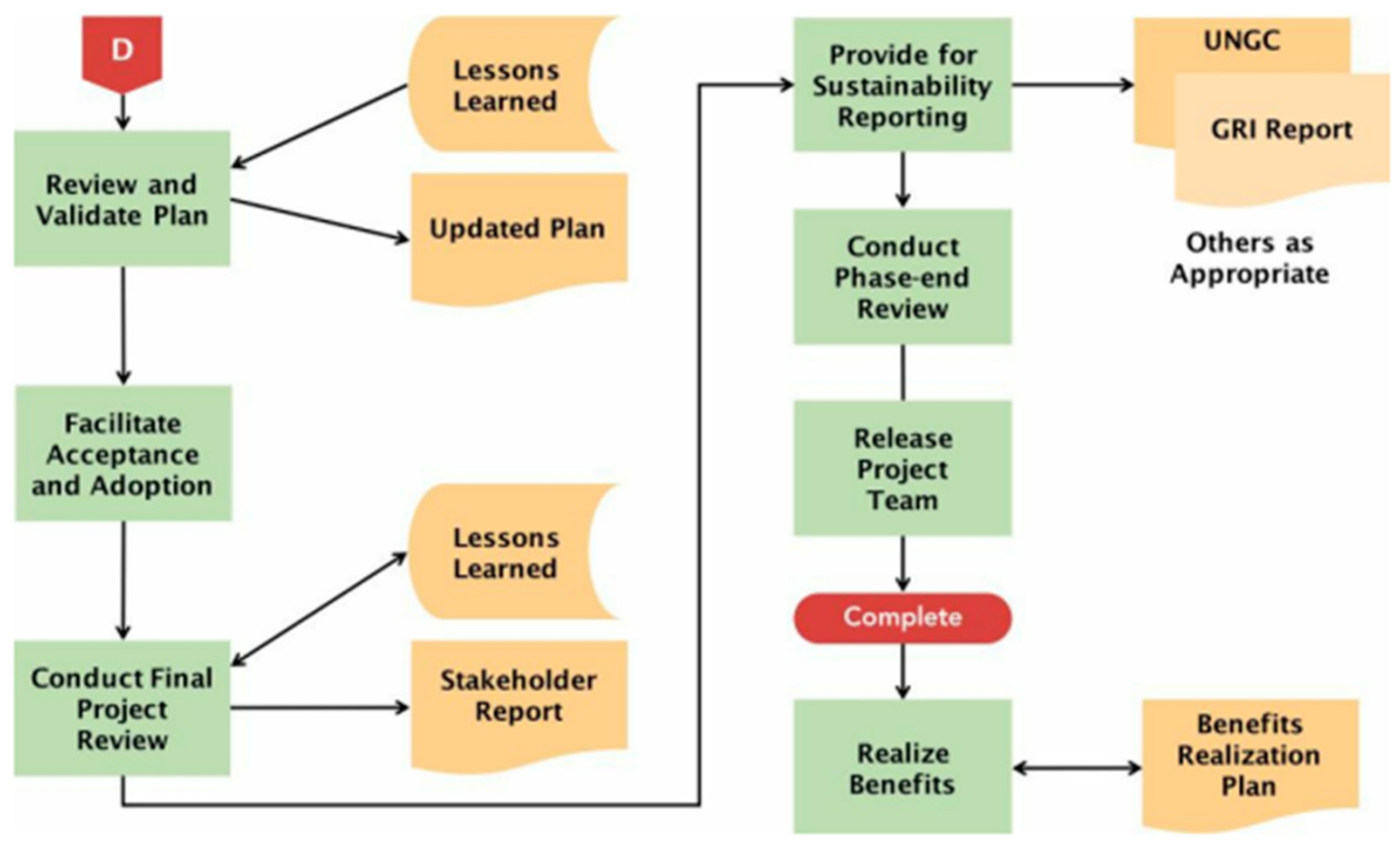
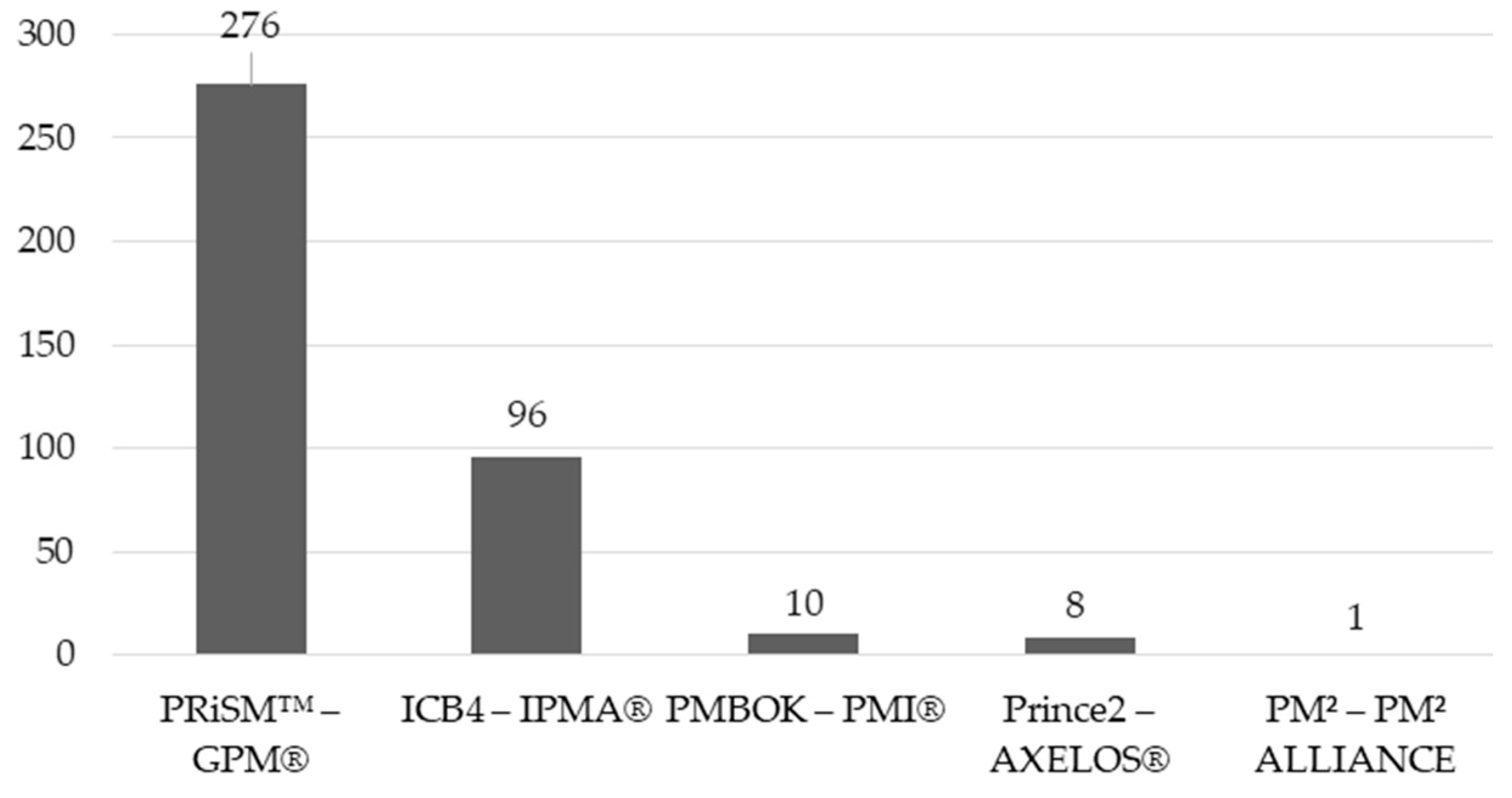
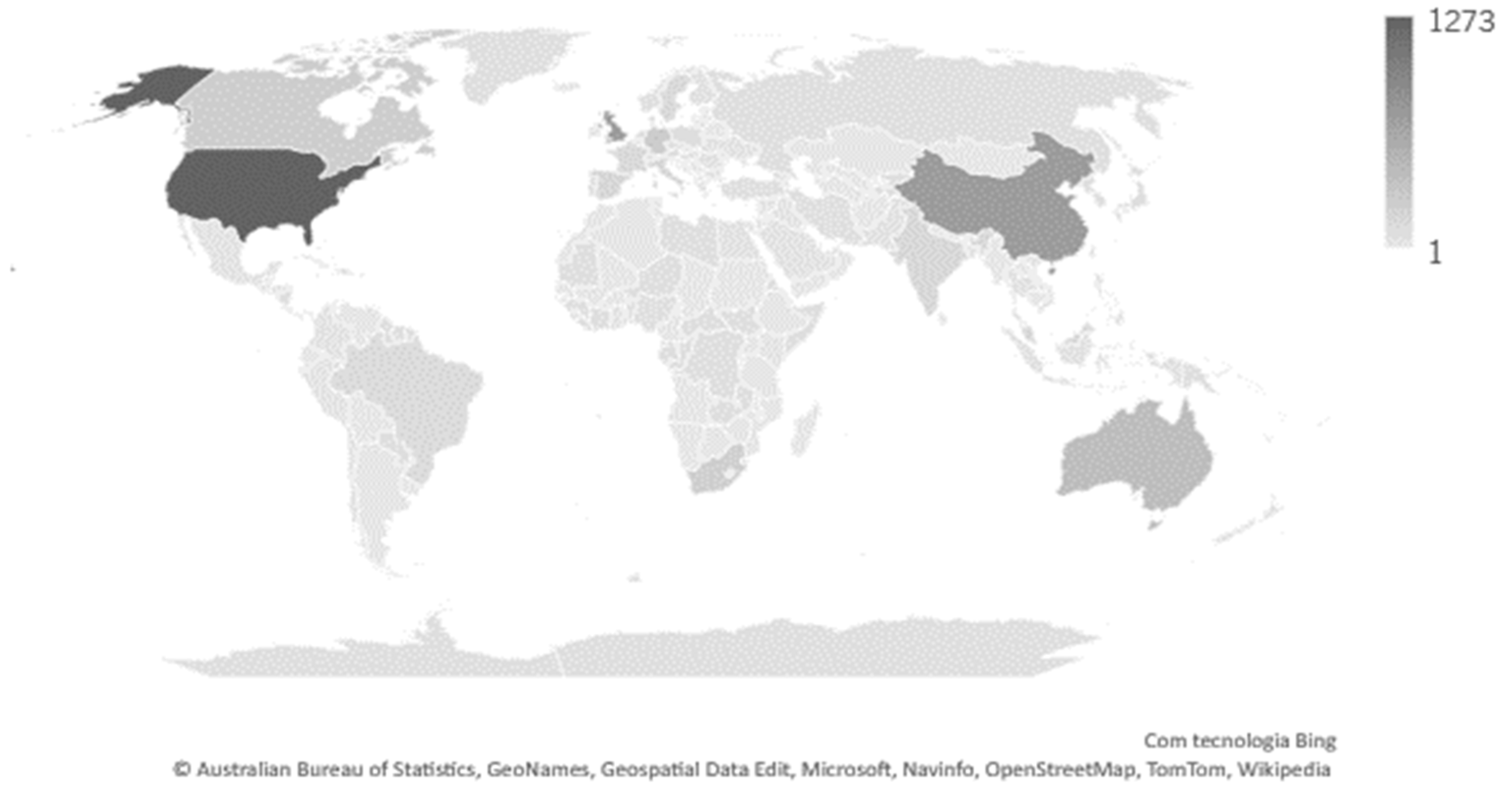
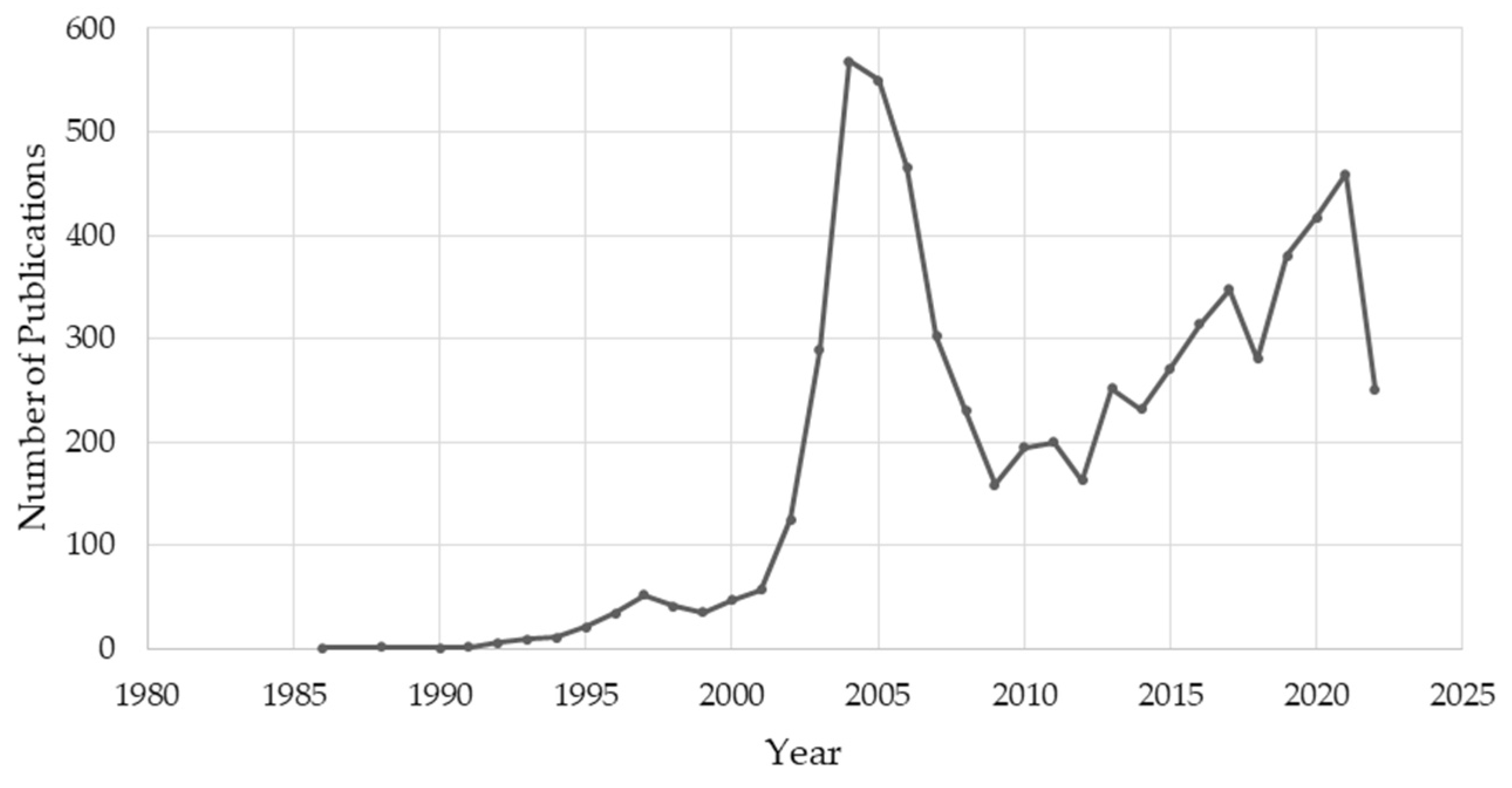
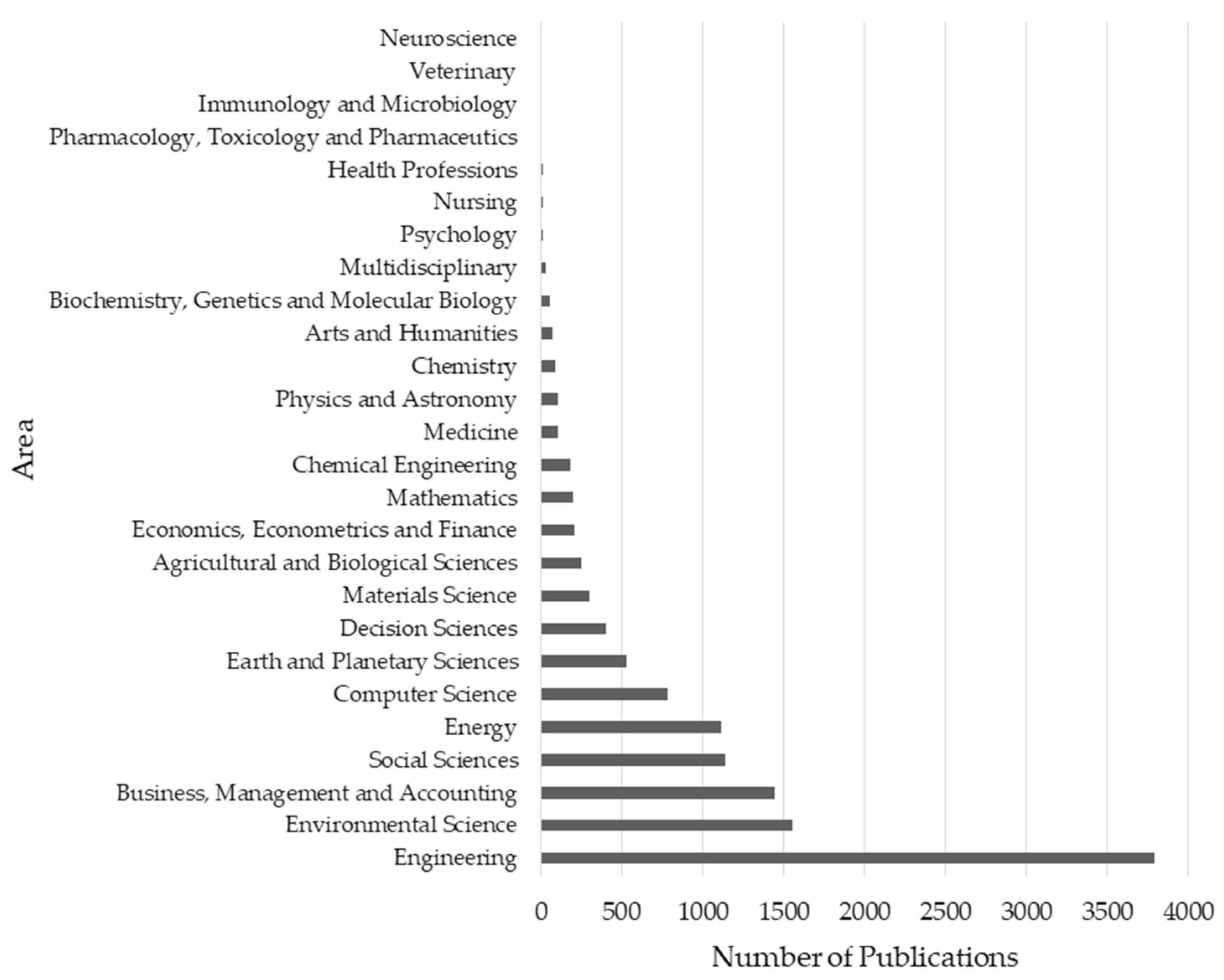
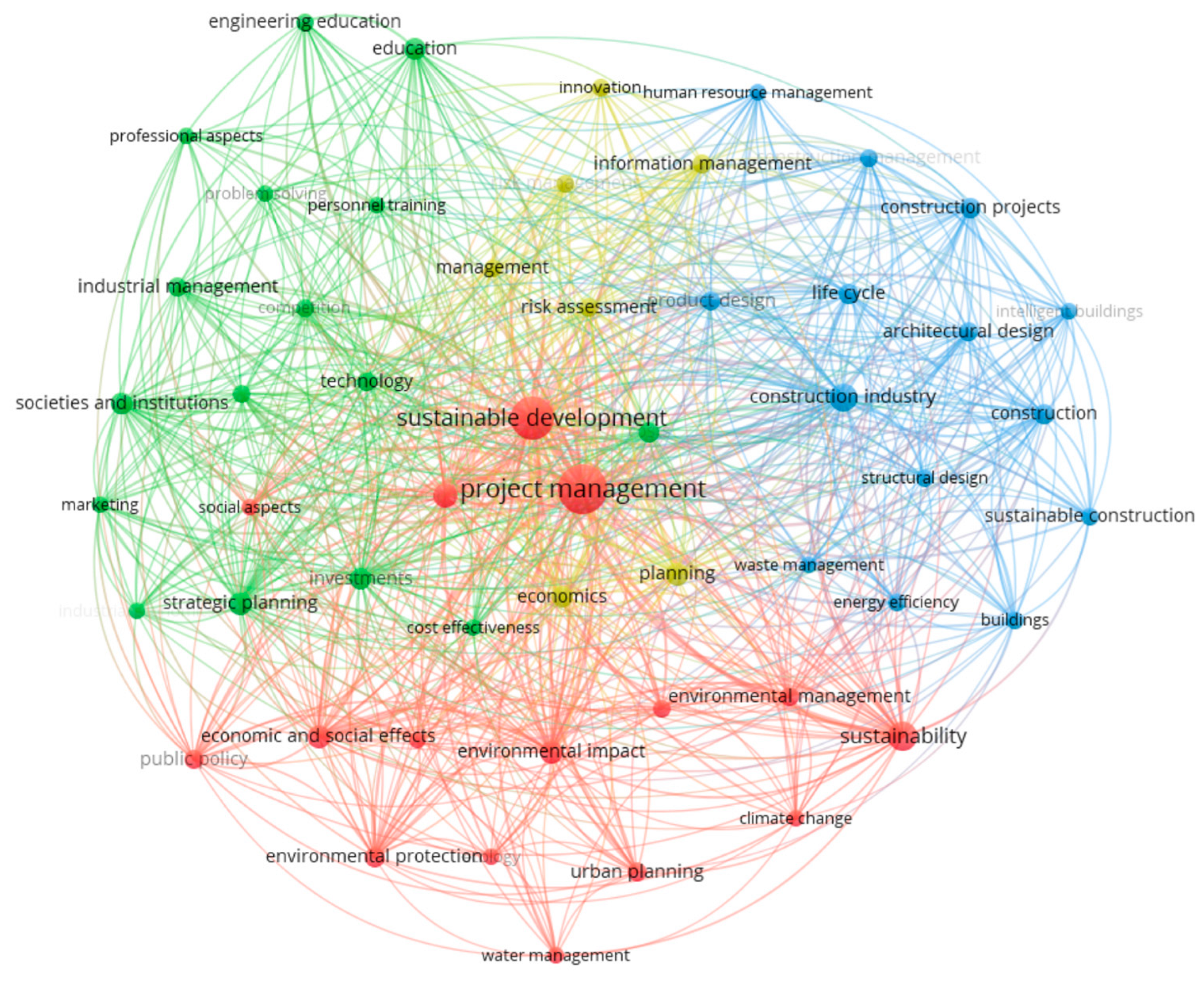
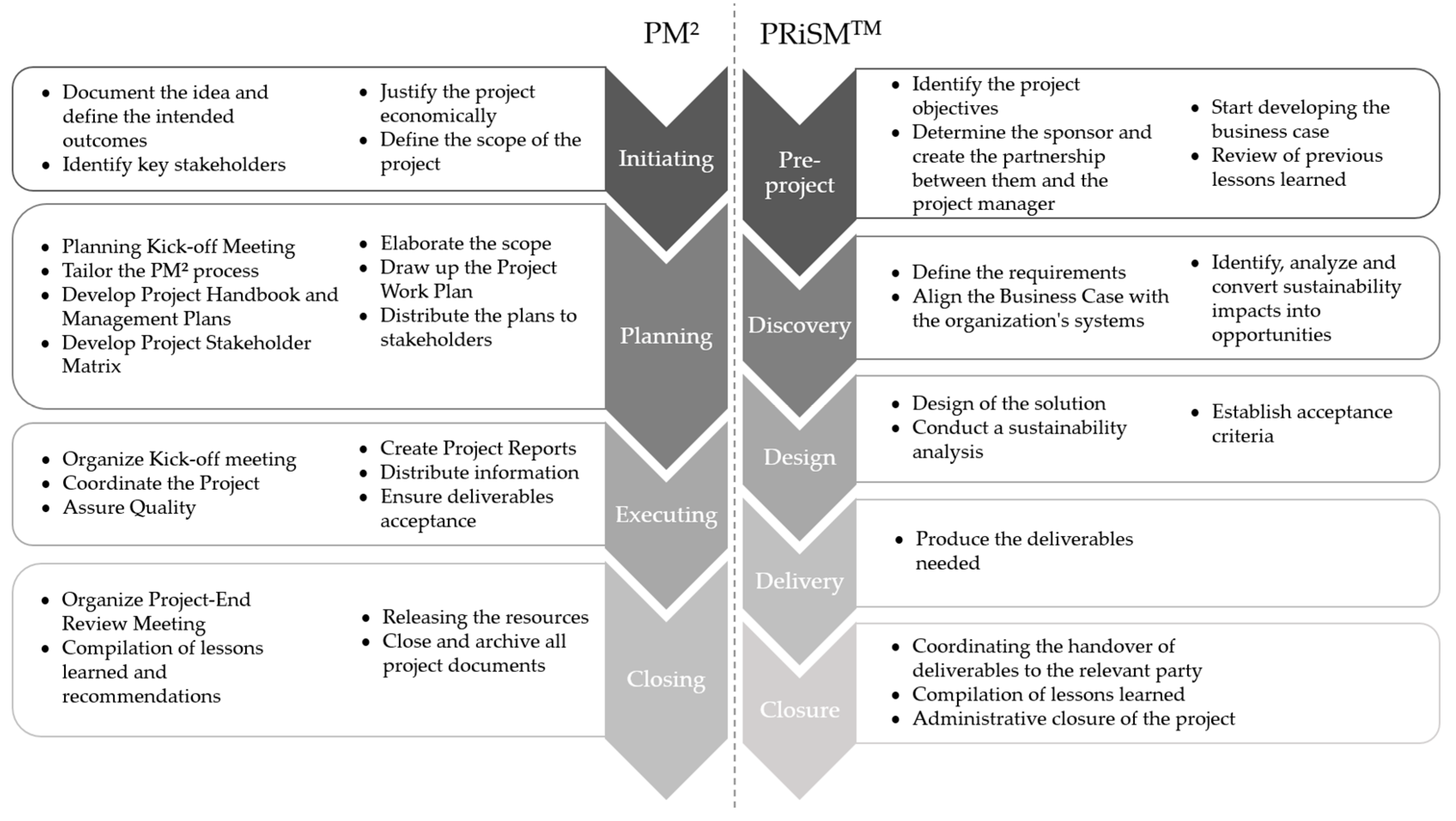
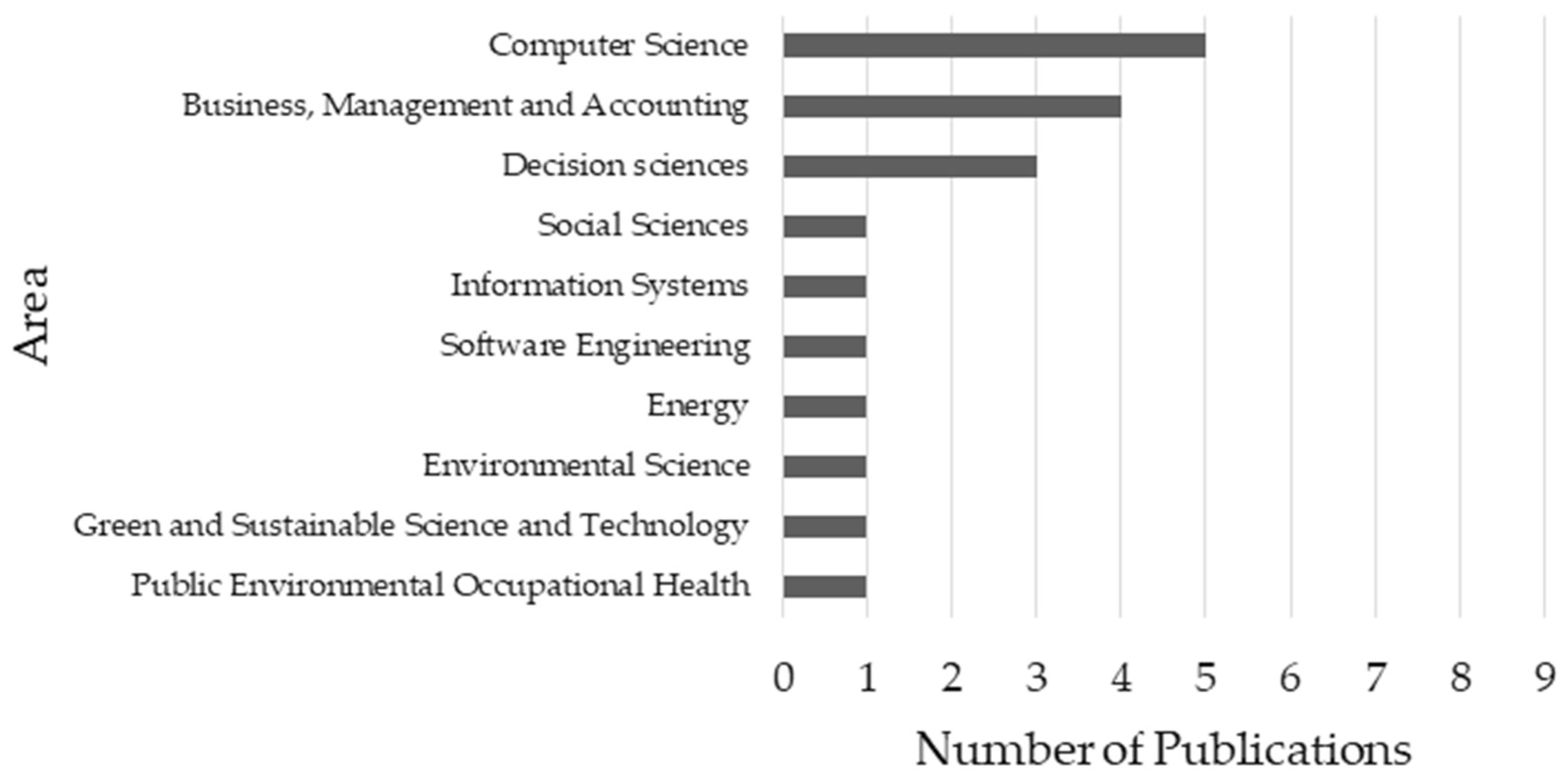
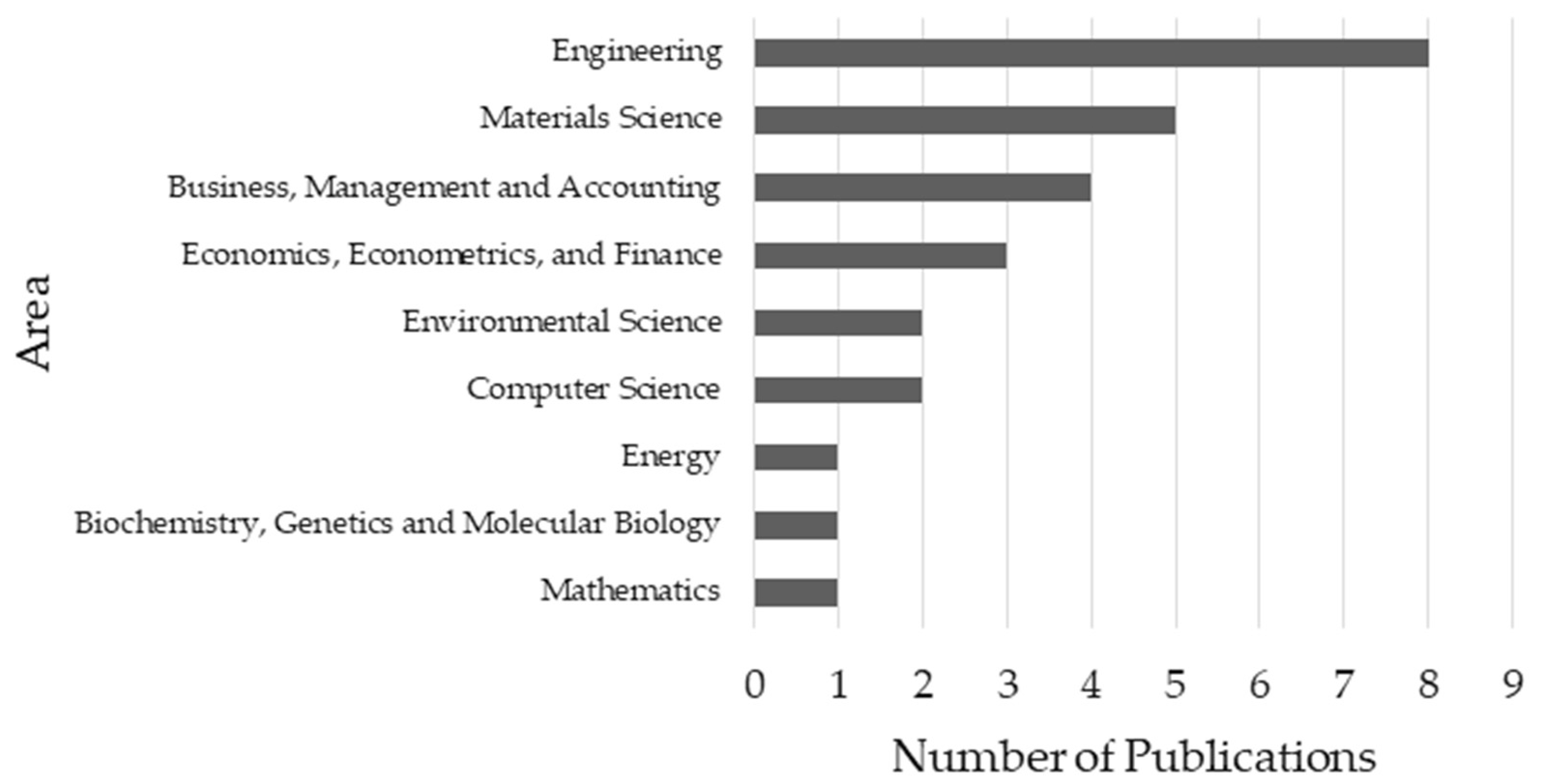
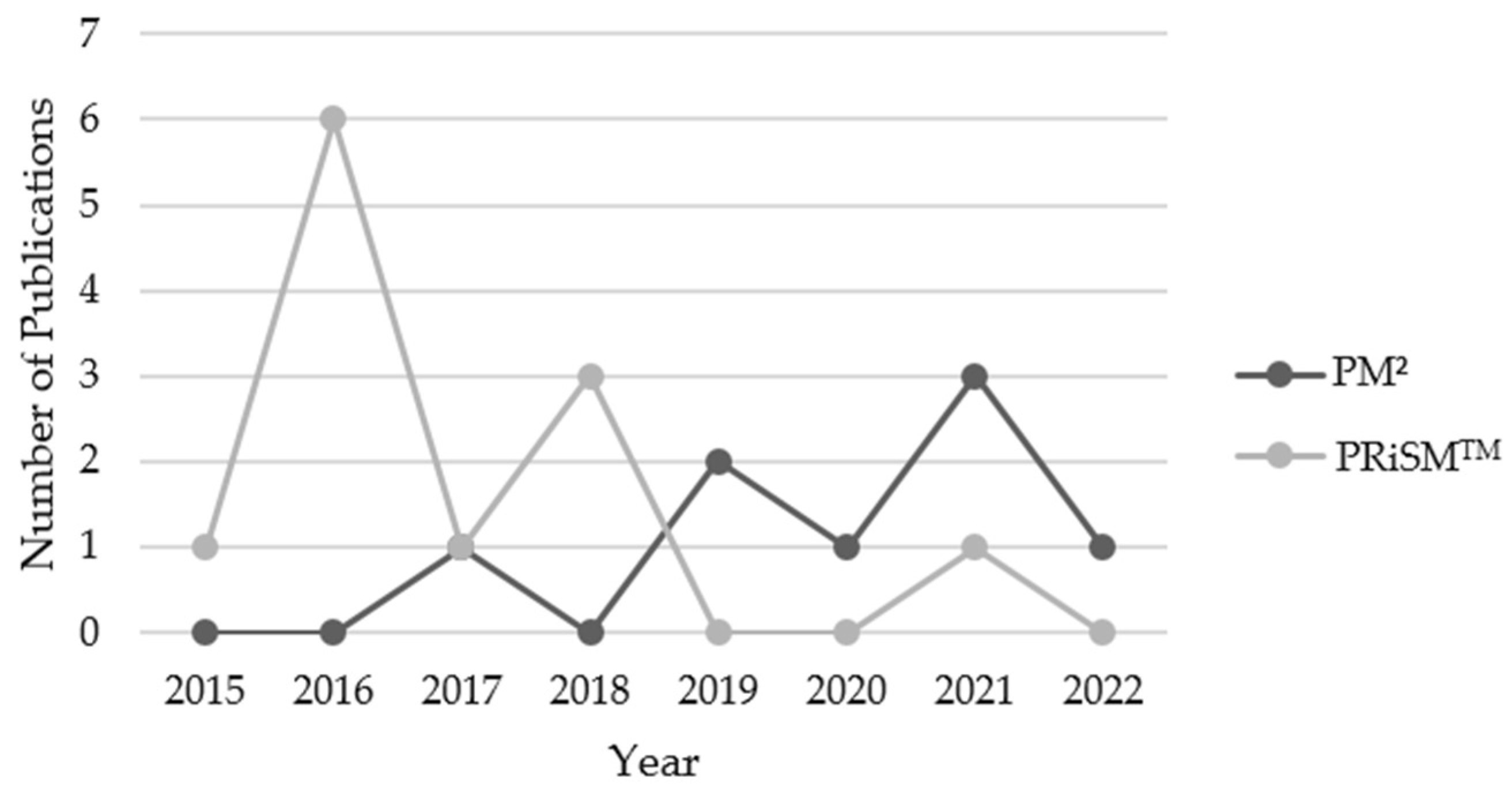
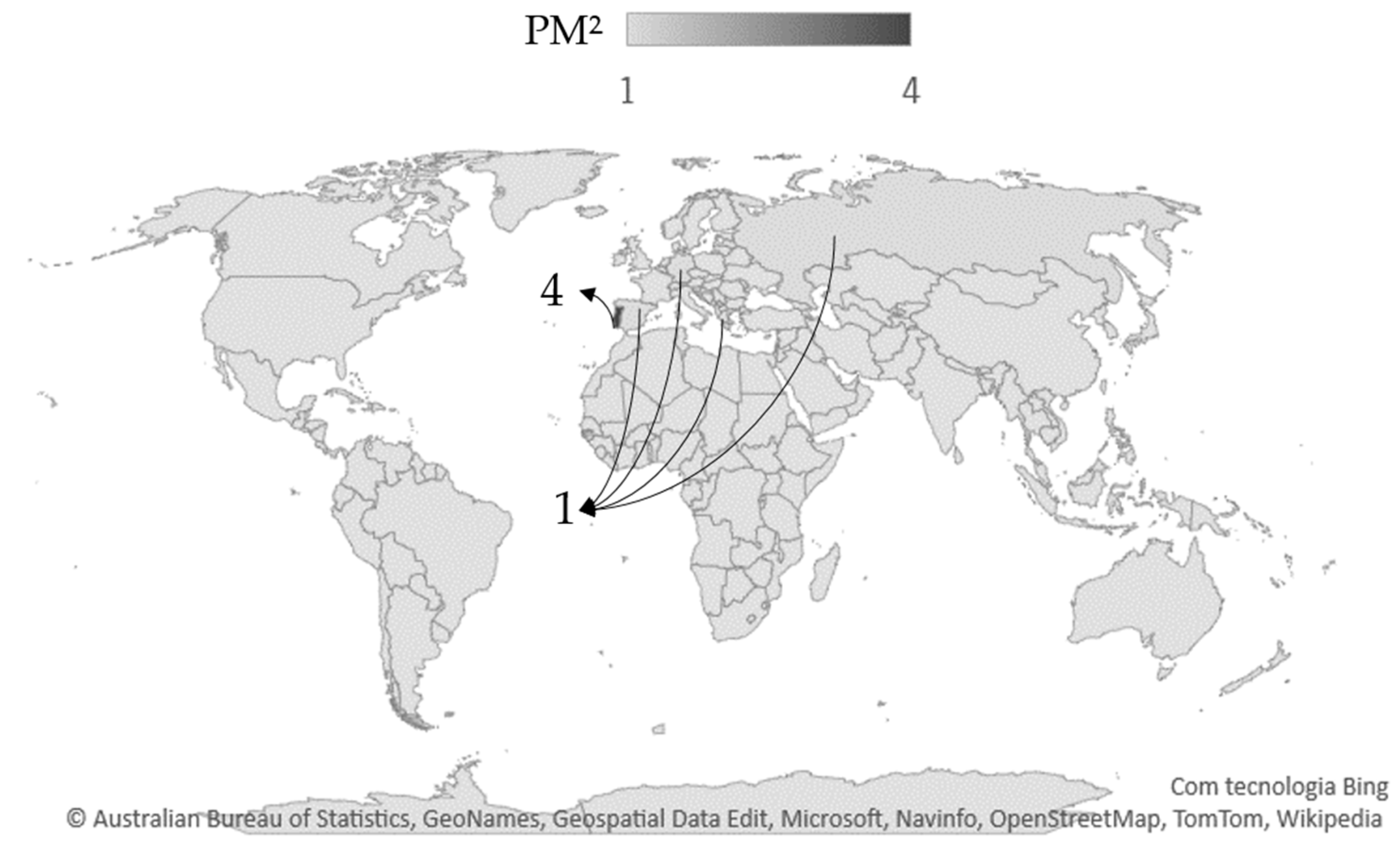
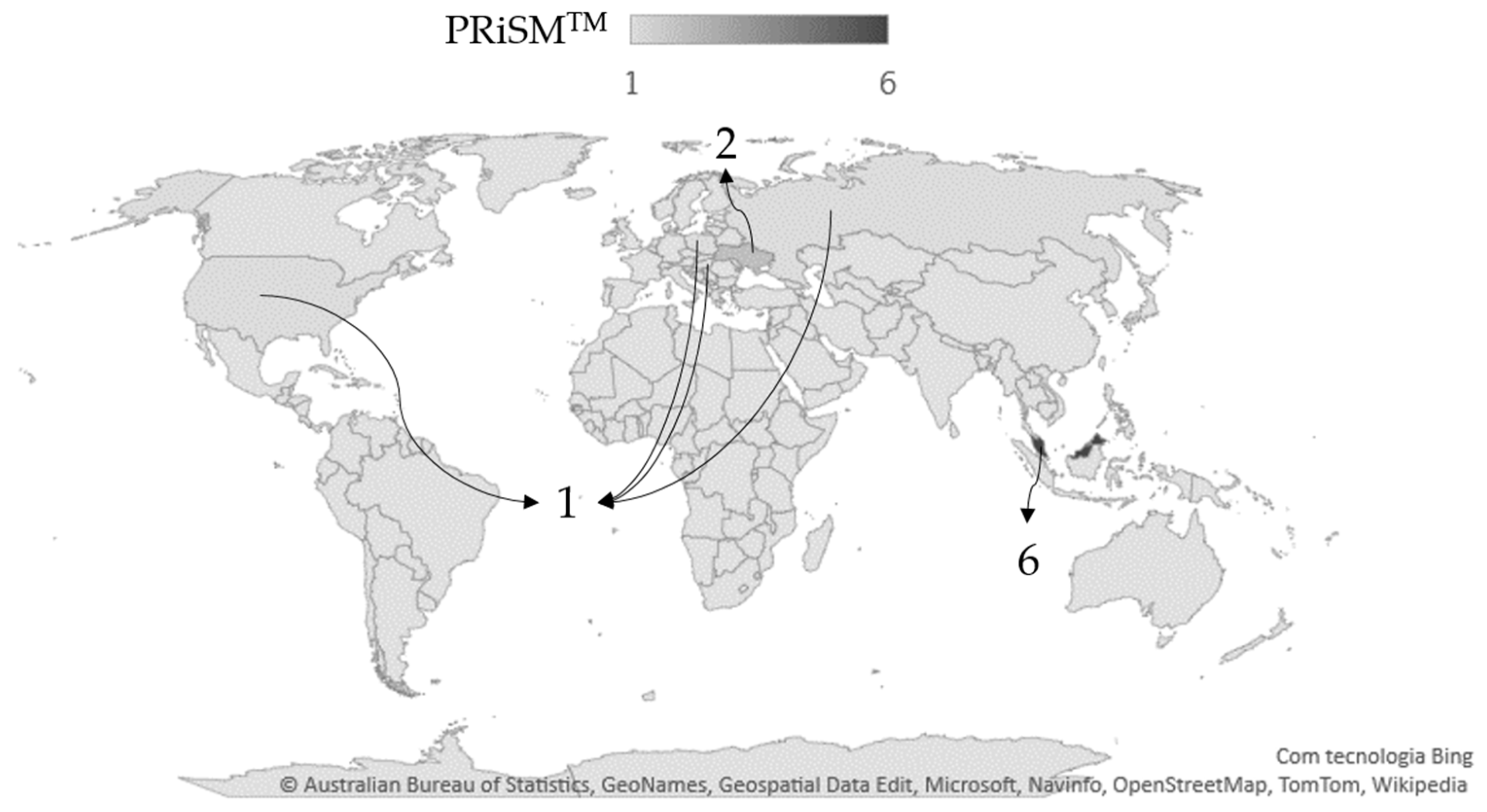
| Authors | Title of the document | Database* | |||
|---|---|---|---|---|---|
| S | W | B | |||
| PM² | Takagi and Varajão (2019) [30] | Integration of success management into project management guides and methodologies - Position paper | ✓ | ✓ | ✓ |
| Pantouvakis (2017) [31] | How can IPMA contribute to new PM² EU commission standard? | ✓ | ✓ | ✓ | |
| Moya-Colorado et al. (2021) [32] | The role of donor agencies in promoting standardized project management in the Spanish development non-government organizations | ✓ | ✓ | ✓ | |
| Ribeiro-Lopes et al. (2022) [33] | Application of the PM² Methodology in the Project Management of the Portuguese Project Management Observatory Creation - Initiating Phase | ✓ | ✓ | ||
| Takagi and Varajão (2020) [34] | Success management in information systems projects - Work-in-progress | ✓ | ✓ | ||
| Takagi et al. (2019) [35] | Integrating success management into EU PM² | ✓ | ✓ | ||
| Fiddicke et al. (2021) [36] | A Phased Approach for preparation and organization of human biomonitoring studies | ✓ | ✓ | ✓ | |
| Katunina and Fomina (2021) [37] | In search of excellence in social entrepreneurship project management: experience and standards of the European Union | ✓ | |||
| PRiSMTM | (Piterska, Kolesnikov, et al., 2018) [38] | Development of the Markovian model for the life cycle of a project’s benefits | ✓ | ✓ | |
| (Turan & Johan, 2016) [39] | Assessing sustainability framework of automotive related industry in the Malaysia context based on GPM P5 standard | ✓ | ✓ | ||
| Piterska, Rudenko, et al. (2018) [40] | Development of the method of formation of the architecture of the innovation program in the system "University -State-Business" | ✓ | |||
| Johan and Turan (2016) [41] | Industrial training approach using GPM P5 Standard for Sustainability in Project Management: A framework for sustainability competencies in the 21st century | ✓ | ✓ | ||
| Turan et al. (2016) [42] | Development of Systematic Sustainability Assessment (SSA) for the Malaysian Industry | ✓ | ✓ | ||
| Johan and Turan, 2016b) [43] | The development of Sustainability Graduate Community (SGC) as a learning pathway for sustainability education - A framework for engineering programmes in Malaysia Technical Universities Network (MTUN) | ✓ | ✓ | ||
| Wan Lanang et al. (2017) [44] | Systematic Assessment Through Mathematical Model for Sustainability Reporting in Malaysia Context | ✓ | ✓ | ||
| (Trzeciak (2021) [45] | Sustainable risk management in it enterprises | ✓ | ✓ | ✓ | |
| Lanang et al. (2018) [46] | Incorporating attitudinal parameter in assessing sustainability of Malaysia manufacturing industry | ✓ | ✓ | ||
| Verba and Ivanov (2015) [47] | Sustainable Development and Project Management: Objectives and Integration Results | ✓ | ✓ | ||
| Salcedo Díaz et al. (2016) [48] | Corporative social responsibility: model of process development for products with base on PRiSM and the p5 strategy | ✓ | ✓ | ||
| Interviewee | Previous PM² methodology masters’ researcher | CEO of PM² Alliance - Mr. Nicos Kourounakis |
|---|---|---|
| Questions | How many methodologies did you use before PM²? How did you learn about PM²? Was it only for your thesis or did you know about it before? If it was only for your thesis, ask: Was it a university thesis proposal or did you choose to use it yourself? Now I would like you to tell me about your experience of using the PM² methodology, what the project consisted of, and what it was like for you. What are the main advantages that you have observed with the use of the methodology? What are the main disadvantages you found with the use of the methodology? What challenges have arisen or had to be overcome by using the methodology? Did you use all the artefacts of the methodology? If not: Do you consider that some are not important or were not relevant to your project in particular? One disadvantage presented by the authors relates to success management. The PM² methodology identifies success factors in the initiation phase and defines the criteria for evaluating project success in the planning phase. But after this identification and definition, PM² does not provide management activities on these artefacts, and there is no monitoring and control throughout the project. Do you think these aspects should be incorporated into the methodology? What do you think is missing in the methodology, what do you think is important to be there and is not? Or do you think nothing is missing? Why? Do you think that including sustainability in this methodology would be a topic to think about in the future and an added value? If yes, why? Do you know the PRiSMTM methodology? And the P5™ of the GPM®? Do you think there is anything else we should talk about this methodology or another topic that we haven’t talked about yet that you think is important? |
After doing a literature review, it was found that sustainability is not found in almost any of the PM methodologies. Do you consider sustainability a relevant issue to be considered in PM? Do you consider that incorporating sustainability in the next version of the PM² methodology would add value? If yes, how? Are you familiar with the GPM® P5™? Do you think it could be used to complement the PM² methodology? One of the disadvantages raised by some authors [52,53,54] is related to success management. The PM² methodology identifies the success factors in the initiation phase (in the Project Initiation Request and the Business Case) and defines the project success evaluation criteria in the planning phase, which are included in the Project Handbook. However, after this identification and definition, PM² does not provide management activities on these artefacts, there is no monitoring and control throughout the project. Why were these activities not considered? Do you consider that it could be a topic to think about in the next version? As a solution to the issue, Takagi and Varajão (2019) [52] propose a success management process integrated into the PM² methodology. This integrative model aims to increase the robustness of success management and integrate the management of success criteria and factors into the planning, execution, closure, monitoring and control phases. What do you think about it? Another disadvantage raised, by some authors [33], is related to the lack of clarity and difficulty in understanding the explanation of the artefacts, even with guidance. As a solution, the authors advocate adding a project example that includes all the completed documents. What are your thoughts on this? Do you have anything else you would like to say about the PM² methodology that would be useful for research? |
| Concept Definitions | ||
|---|---|---|
| Standard | Project | PM |
| PMI® | “A temporary endeavor undertaken to create a unique product, service, or result“ [21] (p. 2). | “The application of knowledge, skills, tools, and techniques to project activities to meet project requirements“ [21] (p. 2). |
| AXELOS | “… the means by which we introduce change and, although many of the skills required are the same,there are some crucial differences between managing business as usual and managing project work” [22] (p. 8). | “… planning, delegating, monitoring and control of all aspects of the project, and the motivation of those involved, to achieve the project objectives within the expected performance targets for time,cost, quality, scope, benefits and risk” [22] (p. 9). |
| PM²ALLIANCE | “… a temporary organisation structure set up to create a unique product or service (output) within certain constraints such as time, cost and quality” [58] (p. 5). | “… activities of planning, securing, monitoring and managing the resources and work necessary to deliver specific project goals and objectives in a effective and efficient way” [58] (p. 7). |
| GPM® | “… an investment that requires a set of coordinated activities performed over a finite period of time in order to accomplish a unique result in support of a desired outcome” [29] (p. 44). | “…application of knowledge, skills, tools, and techniques to coordinate projects effectively and efficiently” [29] (p. 45). |
| APM | “… unique, transient endeavours, undertaken to bring about change and achieve planned objectives, which can be defined in terms of outputs, outcomes or benefits“ [59] (p. 12). | “… application of processes, methods, knowledge, skills and experience to achieve specific objectives for change” [60] (p. 214). |
| IPMA® | “unique, temporary, multi-disciplinary and organized endeavor to realise agreed deliverables within predefined requirements and constraints” [61] (p. 36). | “Project management is concerned with the application of methods, tools, techniques and competences to a project to achieve goals” [61] (p. 36). |
| PM² (PM² ALLIANCE) | PRiSMTM (GPM®) | |
|---|---|---|
| Project | “A project is a temporary organisational structure set up to create a unique product or service (output) within certain constraints such as time, cost and quality” [58] (p. 5). | “GPM defines a project as “an investment that requires a set of coordinated activities performed over a finite period of time in order to accomplish a unique result in support of a desired outcome” [29] (p. 45). |
| PM | “Project Management can be described as the activities of planning, organising, securing, monitoring and managing the resources and work necessary to deliver specific project goals and objectives in an effective and efficient way” [58] (p. 7). | “Project management is the application of knowledge, skills, tools, and techniques to coordinate projects effectively and efficiently” [29] (p. 46). |
| Methodology | Deliverables | |||
|---|---|---|---|---|
| PM² |
Initiating
|
Planning
|
Executing
|
Closing
|
| Monitor & Control | ||||
|
|
|
|
|
| PRiSMTM |
Business Case Impact Analysis Requirements Document Design Document Sustainability Management Plan Project Success Criteria Stakeholder Engagement Plan Lessons Learned |
Management Plans (as required):
|
||
| Author and Year 1 | |||||||||
|---|---|---|---|---|---|---|---|---|---|
| Feature | A 2017 | B 2019 | C 2019 | D 2020 | E 2021 | F 2021 | G 2021 | H 2022 | Total |
| Good "recipe book" | ✓ | 1 | |||||||
| Includes transition management | ✓ | ✓ | 2 | ||||||
| Embracing | ✓ | ✓ | 2 | ||||||
| Simple and easy to implement | ✓ | ✓ | ✓ | 3 | |||||
| Standardized language | ✓ | ✓ | 2 | ||||||
| Best practices from other bodies of knowledge | ✓ | ✓ | ✓ | ✓ | ✓ | ✓ | ✓ | 7 | |
| Customizable | ✓ | 1 | |||||||
| Available online | ✓ | ✓ | ✓ | 3 | |||||
| Free | ✓ | ✓ | ✓ | 3 | |||||
| Shift from traditional design to a holistic view | ✓ | 1 | |||||||
| PM² Alliance certification is available | ✓ | 1 | |||||||
| Follows a process approach | ✓ | 1 | |||||||
| Describes individual strengths/virtues | ✓ | ✓ | 2 | ||||||
| Description of skills and virtues is limited and fragmented | ✓ | 1 | |||||||
| Offers templates of the artefacts | ✓ | 1 | |||||||
| Artefacts with unclear explanations | ✓ | 1 | |||||||
| Smallest dimension | ✓ | 1 | |||||||
| Includes specific activities to identify success factors and criteria in the initiation and planning stages | ✓ | ✓ | ✓ | 3 | |||||
| Does not clearly address success management in all phases of the project | ✓ | ✓ | ✓ | 3 | |||||
| Lack of scientific papers on its use | ✓ | 1 | |||||||
| Author and Year 2 | |||||||||||
|---|---|---|---|---|---|---|---|---|---|---|---|
| Feature | A 2015 | B 2016 | C 2016 | D 2016 | E 2016 | F 2016 | G 2016 | H 2017 | I 2018 | J 2018 | Total |
| Value-oriented | ✓ | 1 | |||||||||
| Principles of "green" management | ✓ | 1 | |||||||||
| P5™ can be developed at any stage of the process | ✓ | 1 | |||||||||
| Set of good practices for companies’ SD | ✓ | 1 | |||||||||
| 1st PM tool for sustainability analysis | ✓ | 1 | |||||||||
| Guide to implement sustainable objectives | ✓ | 1 | |||||||||
| Combines three basic CSR parameters | ✓ | 1 | |||||||||
| Stepping stone to effective CSR practice | ✓ | 1 | |||||||||
| Comprehensive | ✓ | 1 | |||||||||
| Extension of TBL, considers profit, planet, people, product and process | ✓ | ✓ | ✓ | ✓ | ✓ | 5 | |||||
| Set of good practices for SD | ✓ | 1 | |||||||||
| Increased longevity and profitability | ✓ | 1 | |||||||||
| P5™ can be a training pathway for engineering students | ✓ | ✓ | 2 | ||||||||
| Contains sustainability components at the organizational level | ✓ | 1 | |||||||||
| Creates difficulties in a single project context | ✓ | 1 | |||||||||
| Representation of life cycle processes only on a qualitative level | ✓ | 1 | |||||||||
| Minimal research in developing countries | ✓ | 1 | |||||||||
| Question Topic | Answer |
|---|---|
| PM² Advantages | Free; Small size; Well-built; Useful; Valid; Easy to apply; Similar to other guidelines; Allows customization of the documents; Artefacts are adaptable and adjustable to the project. |
| PM² Disadvantages | Difficulty in finding training related to the methodology; Confusing initial phase; Lack of follow-up regarding the success management during the project; Tools of the final part of the methodology are little explored. |
| PM² Future Suggestions | Documentation management - moving from Word, Excel documents to a digital platform. |
| PRiSMTM | No knowledge about the GPM®, the P5™ standard and the PRiSMTM methodology. |
| Sustainability | Increased appreciation and importance of sustainability area over time;Sustainability criteria should be included more and more. |
| Sustainability PM² | PM² mentions sustainability since:
The methodology doesn’t predict sustainability criteria; The insertion of sustainability is viable since the methodology is adaptable. |
| Question Topic | Answer |
|---|---|
| Sustainability | Important dimension; Needs to be achieved at the organizational and cultural levels; A topic that can be addressed and improved in PM; The methodology cannot specify something in such a narrow way; After the project definition not much can be done to integrate sustainability objectives. |
| PM² Sustainability | Can improve in this direction; Addresses the broader issue of sustainability; Can be included in the Project Handbook, additional objectives, and PM² mind-sets; PM² is a generic methodology, that tries to have a holistic approach, so environmental sustainability cannot be a dominant dimension. |
| Success Management | Need to define generic ways to measure success as each project has different objectives. |
| PM² Success Management | Critical success factors and critical success criteria besides being addressed in the initiation phase, are integrated into the project objectives; The project team and the project itself have to focus on achieving the four objectives (scope, time, cost and quality); Control and monitoring verify the level of achievement of these objectives; Criteria and activities for measuring success are found in PM²: at the end of the project (lessons learned, post-project recommendations and degree of success) and at each phase of the project (phase gates and monitoring, control and management activities). |
| Examples to bridge the gap in understanding the explanation of artefacts | An excellent and valuable way to learn; Should be used at organizational and educational/training level. |
| Examples to overcome the difficulty of understanding the explanation of the artefacts in PM² | PM² is a generic methodology, which can be used by any organization and type of project, and the examples are quite specific; Inserting examples would make the methodology more complex. |
Disclaimer/Publisher’s Note: The statements, opinions and data contained in all publications are solely those of the individual author(s) and contributor(s) and not of MDPI and/or the editor(s). MDPI and/or the editor(s) disclaim responsibility for any injury to people or property resulting from any ideas, methods, instructions or products referred to in the content. |
© 2023 by the authors. Licensee MDPI, Basel, Switzerland. This article is an open access article distributed under the terms and conditions of the Creative Commons Attribution (CC BY) license (https://creativecommons.org/licenses/by/4.0/).





